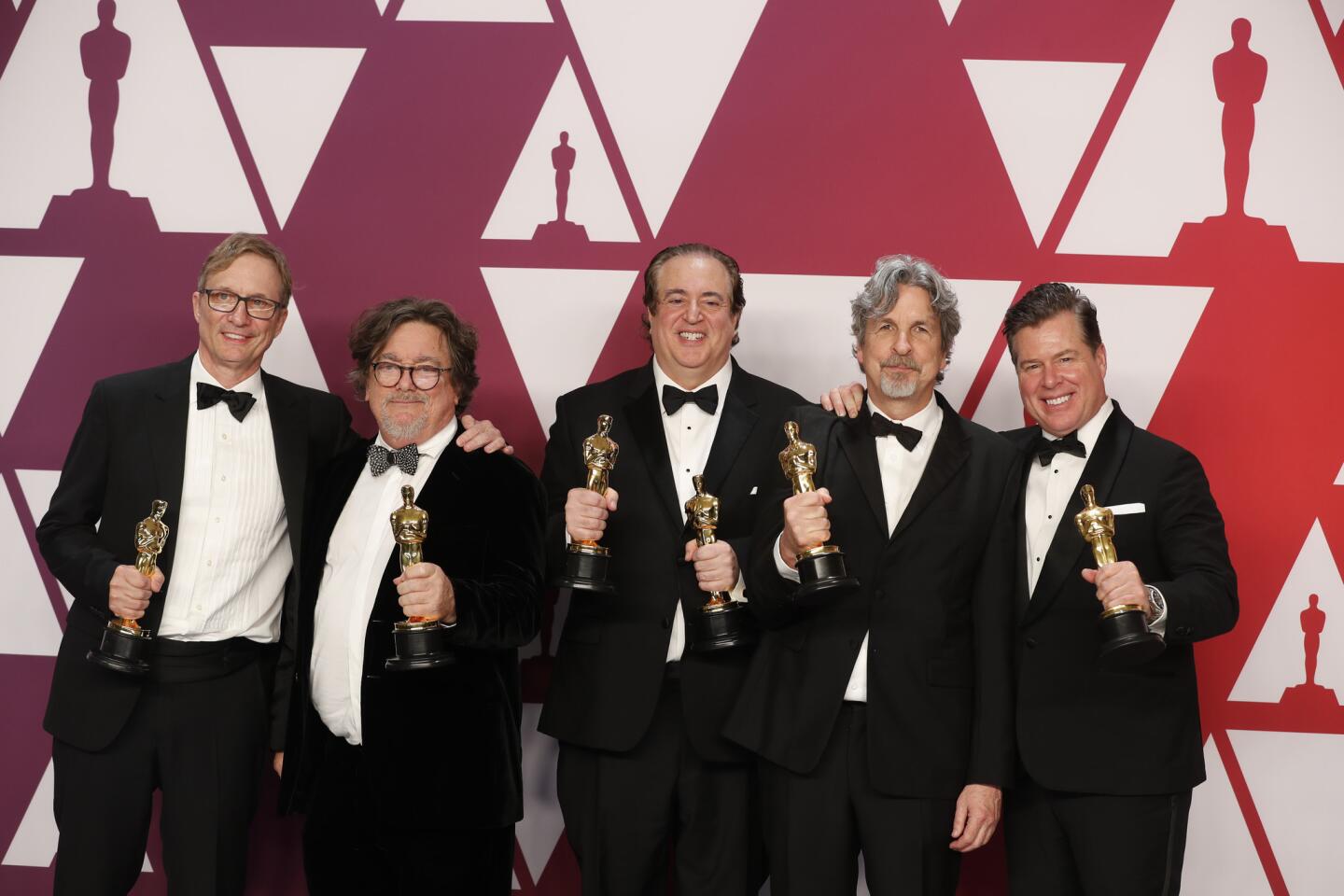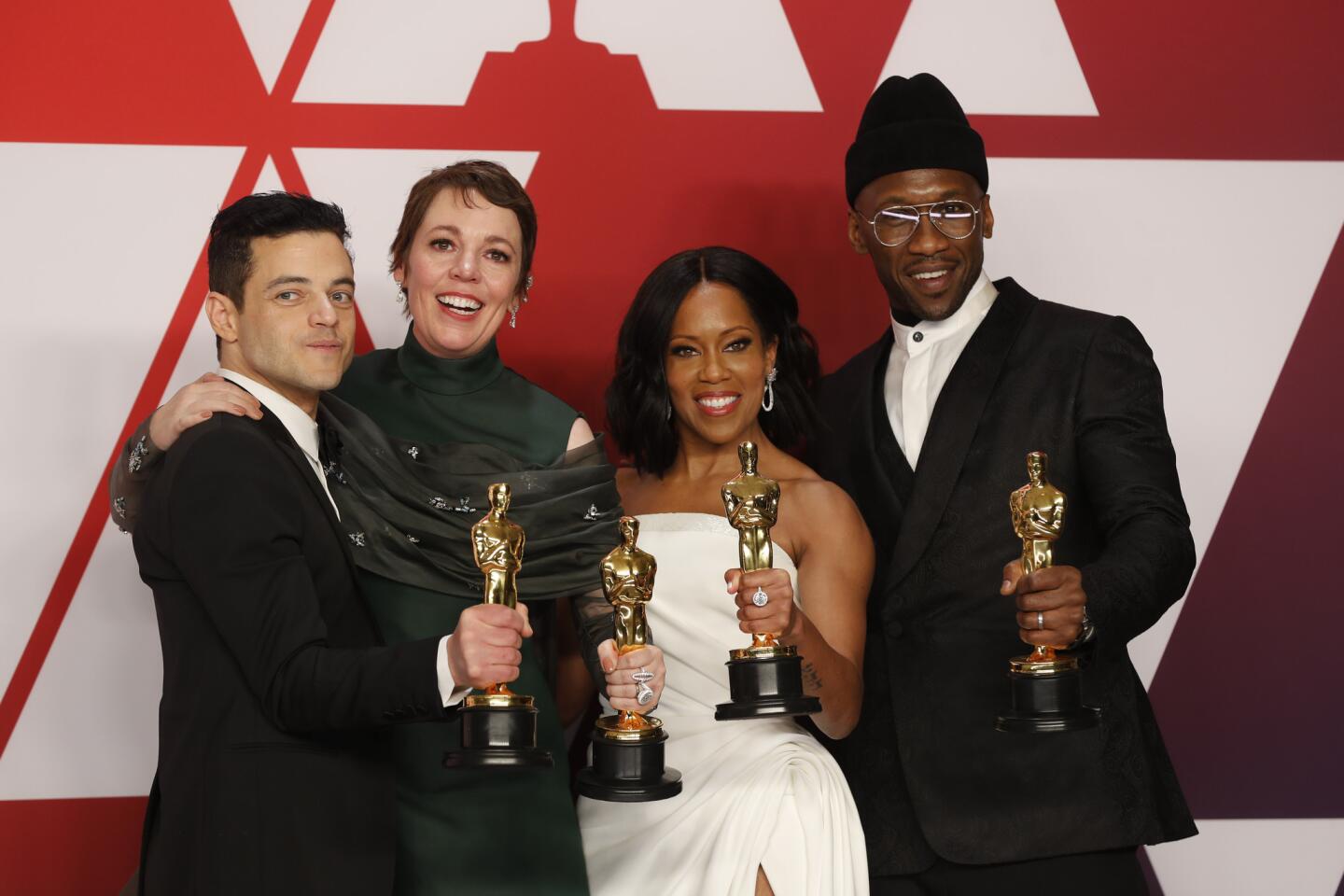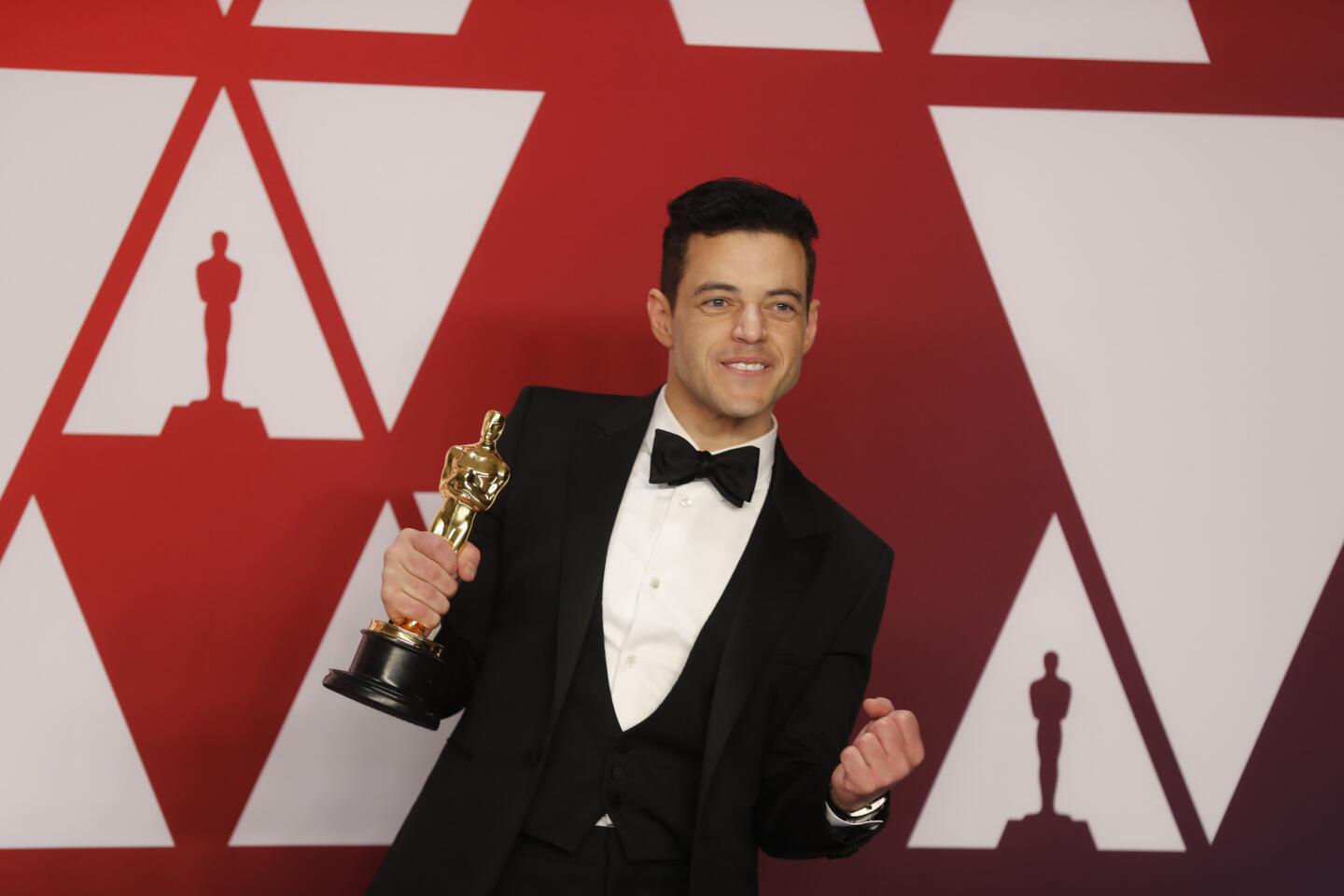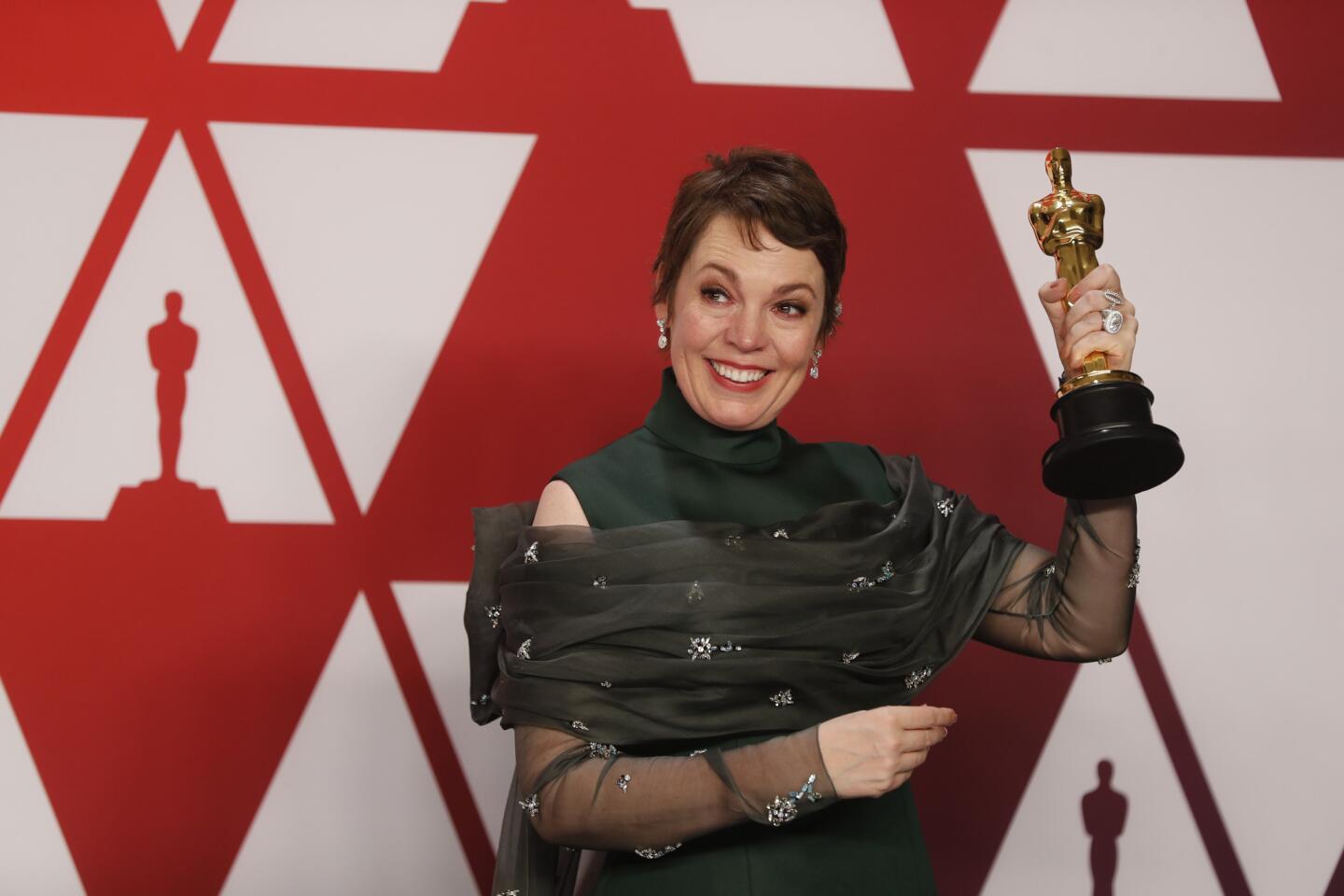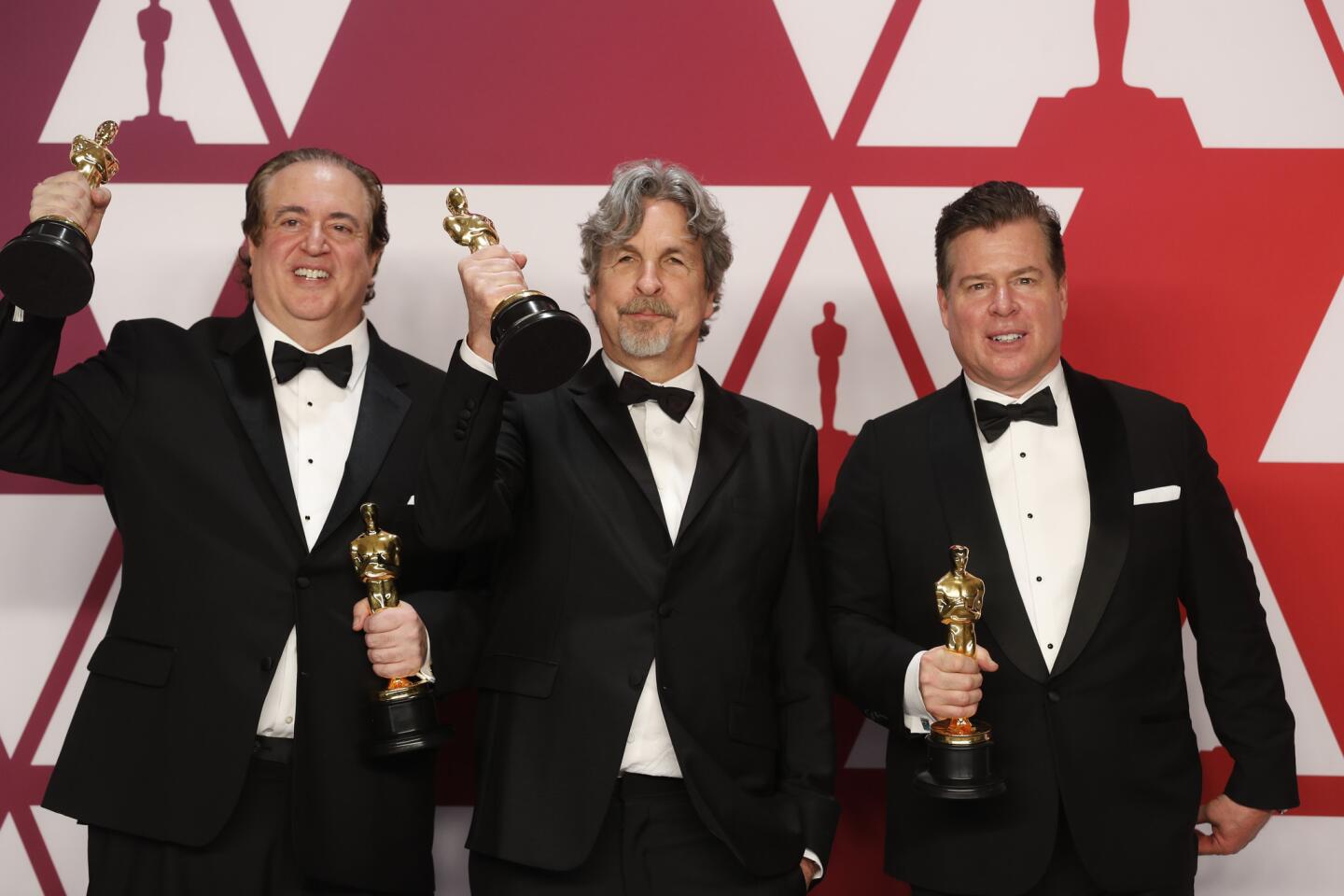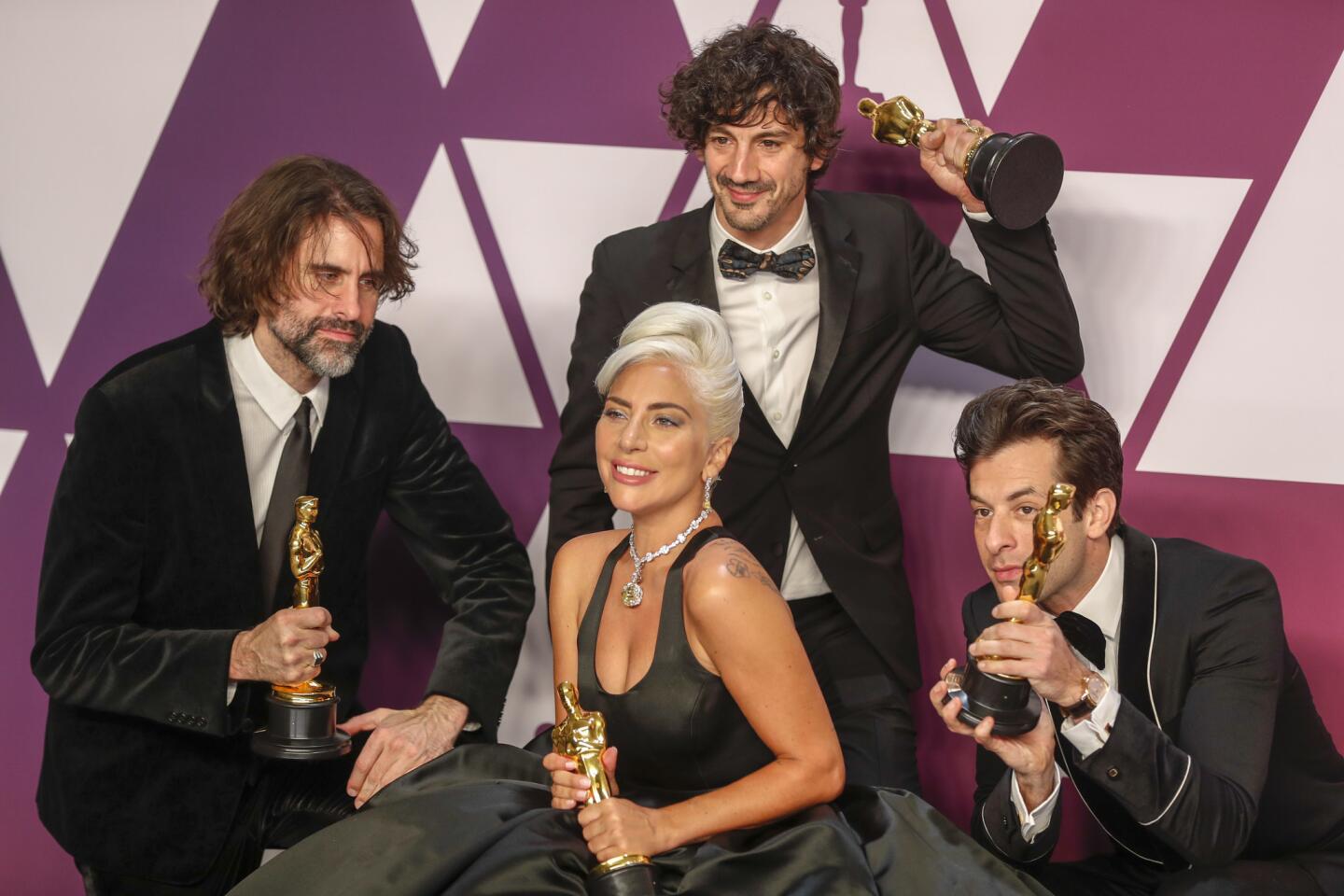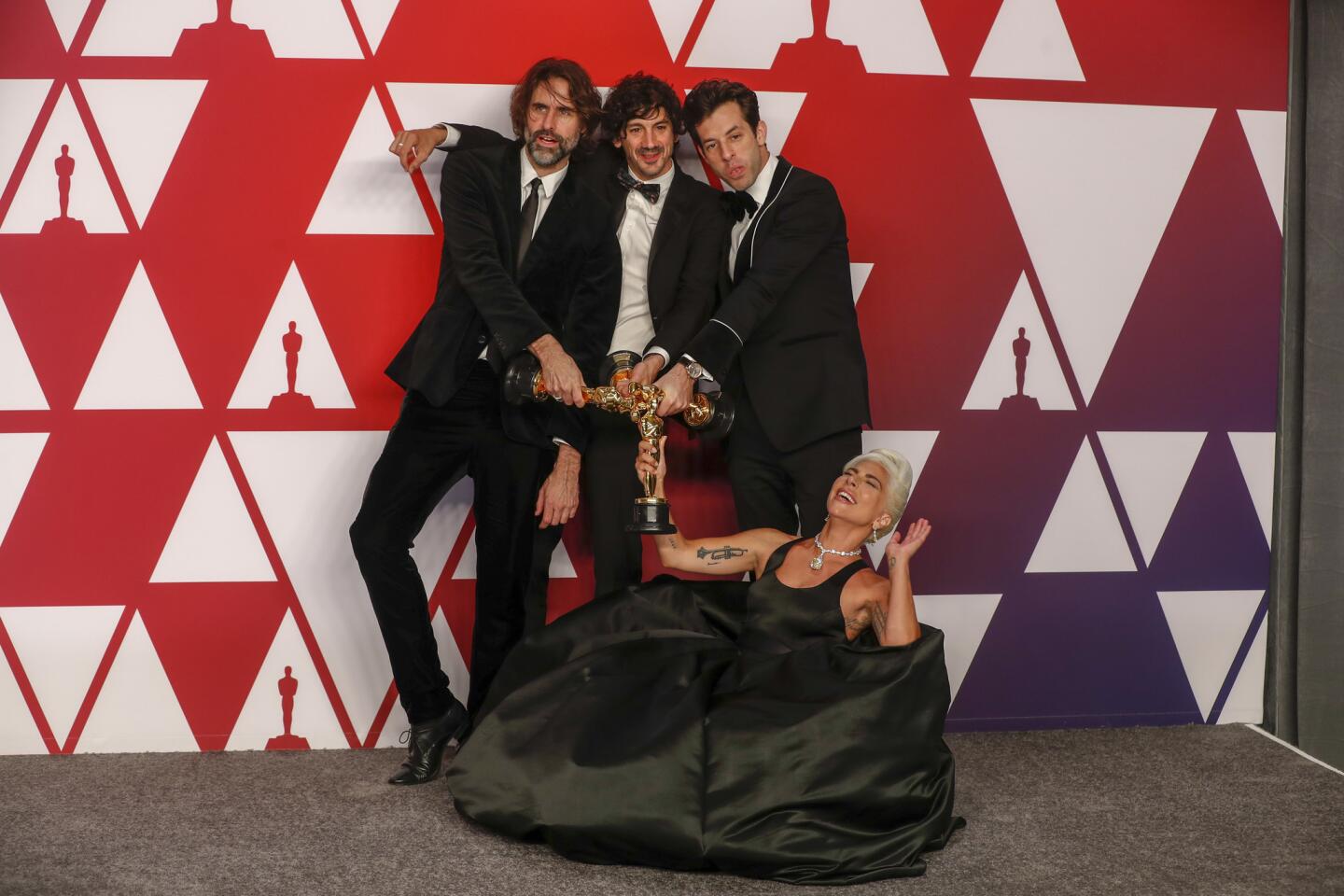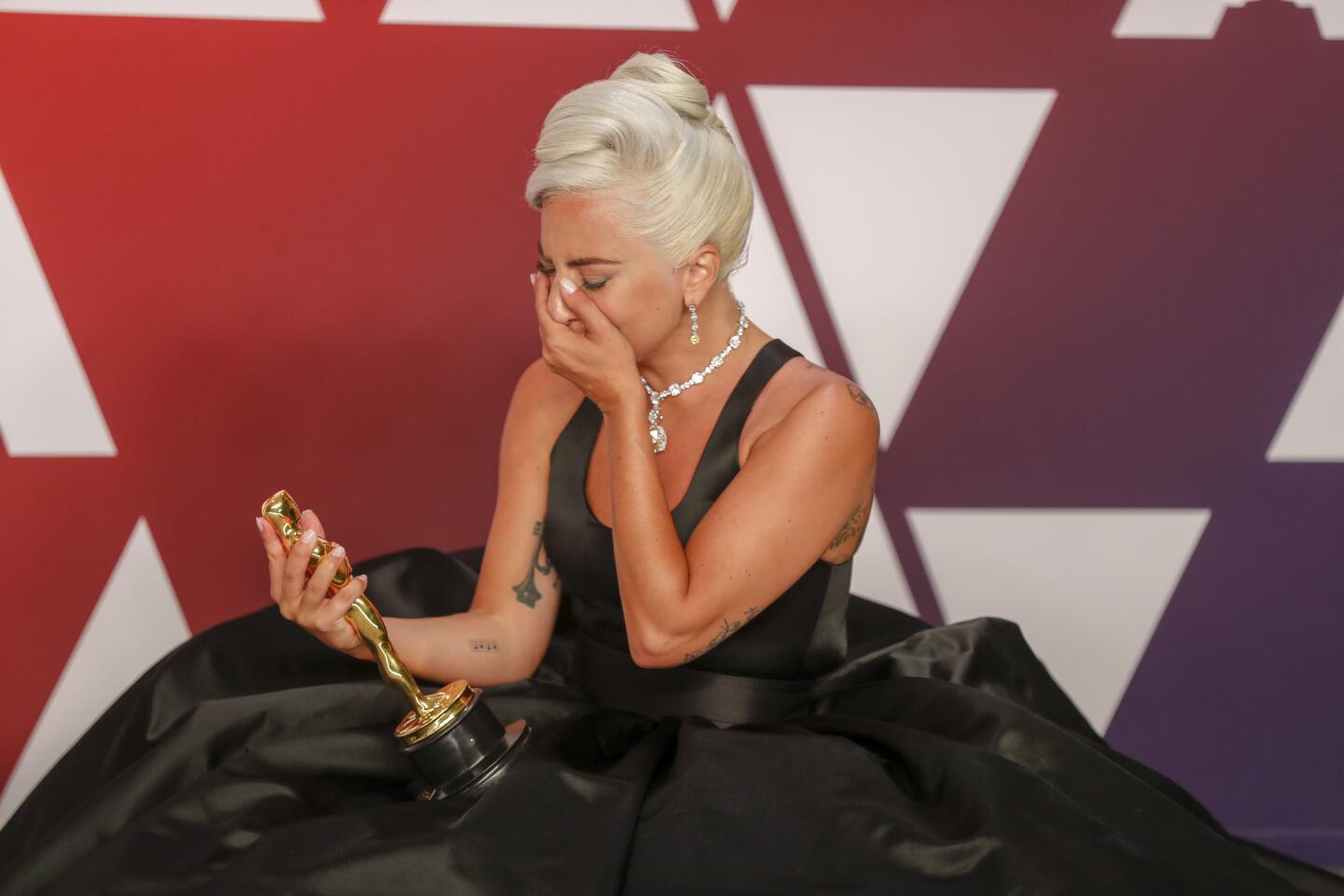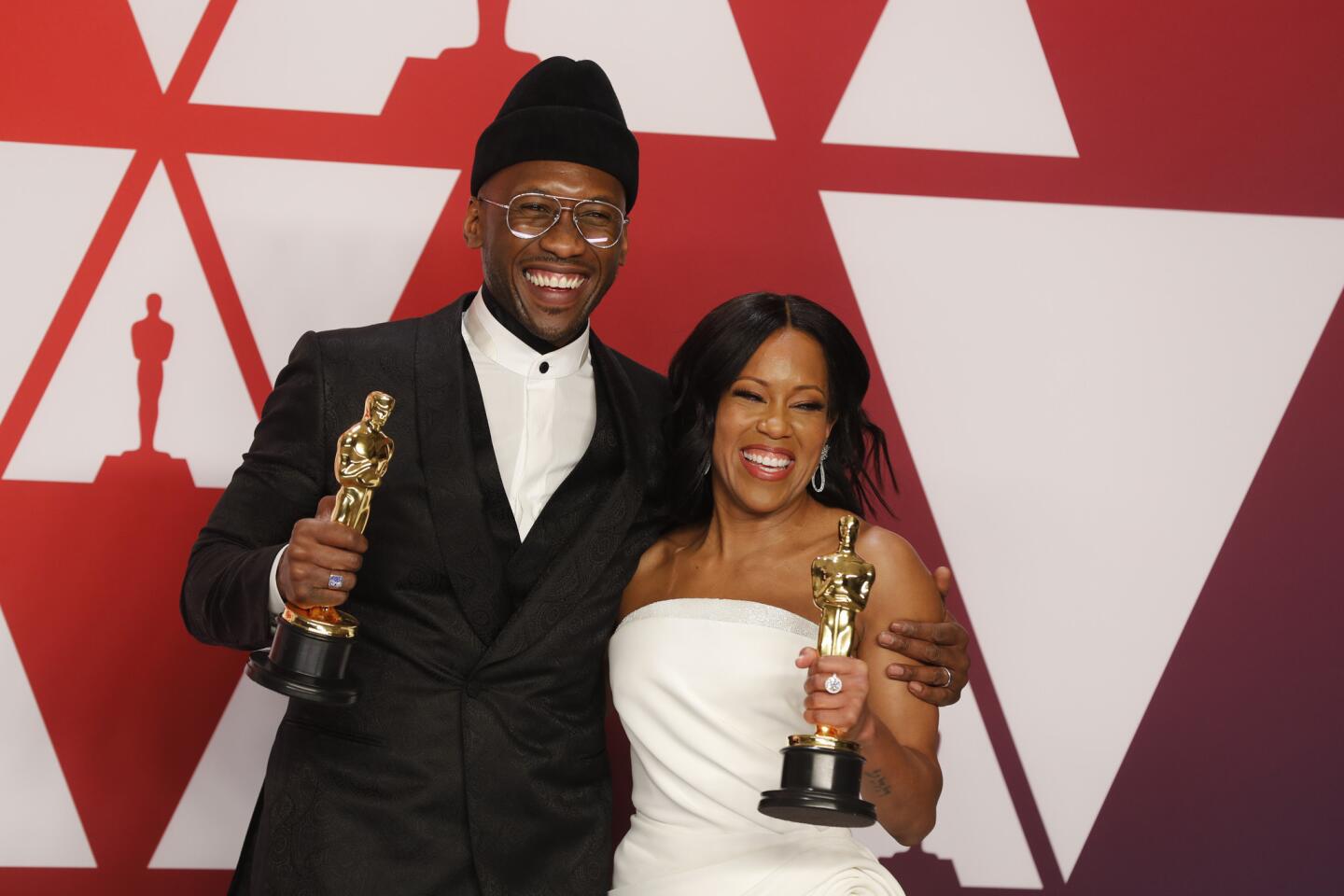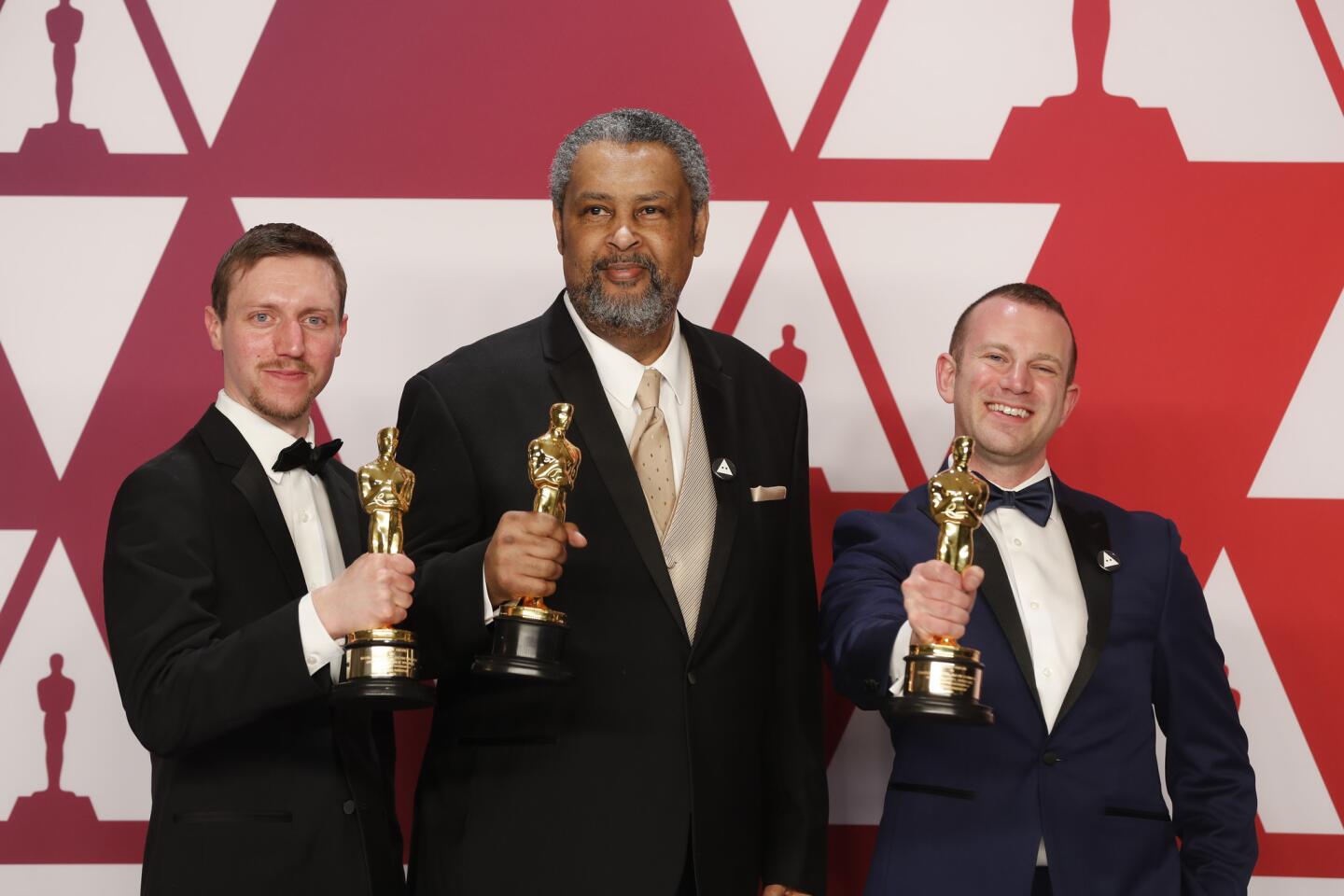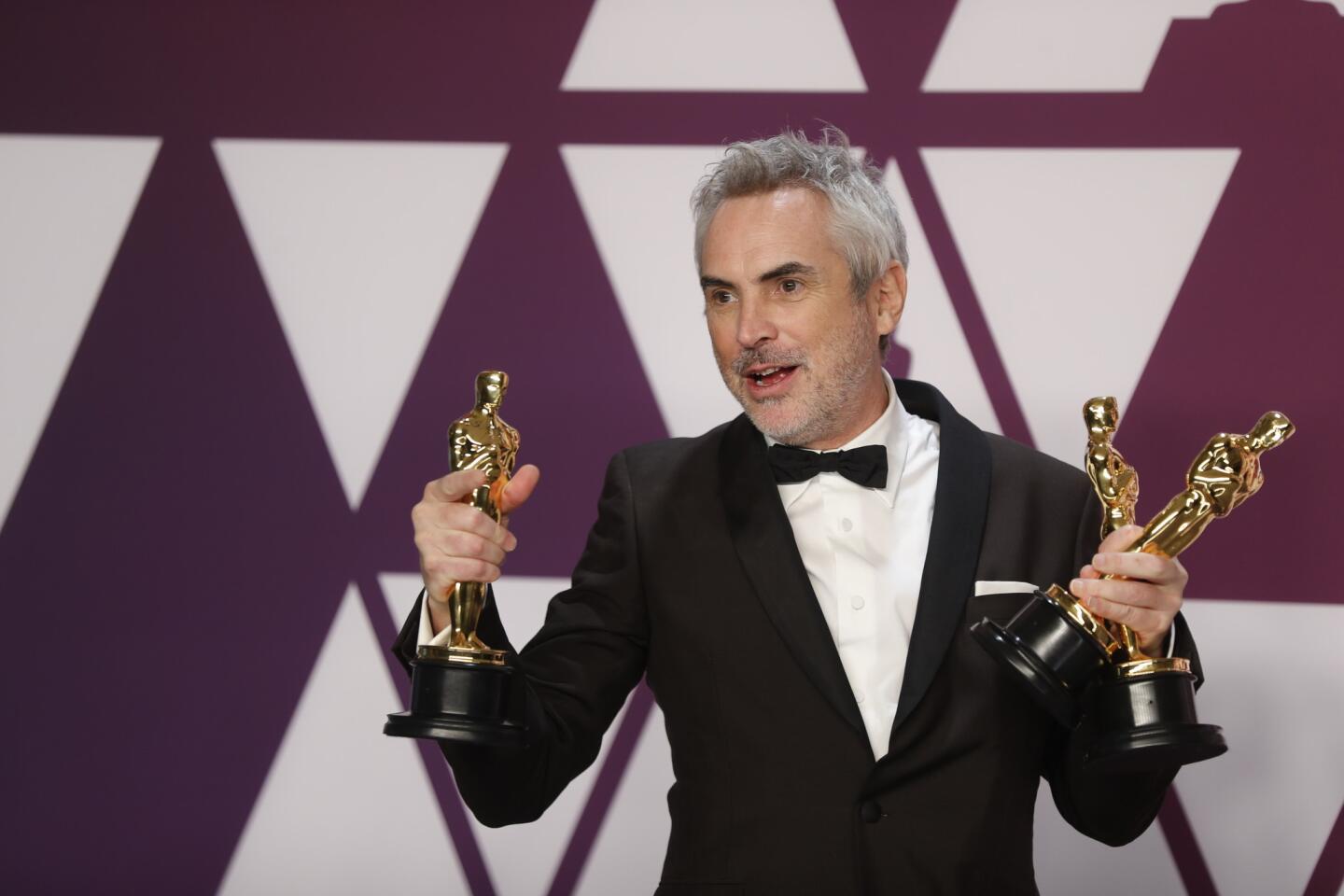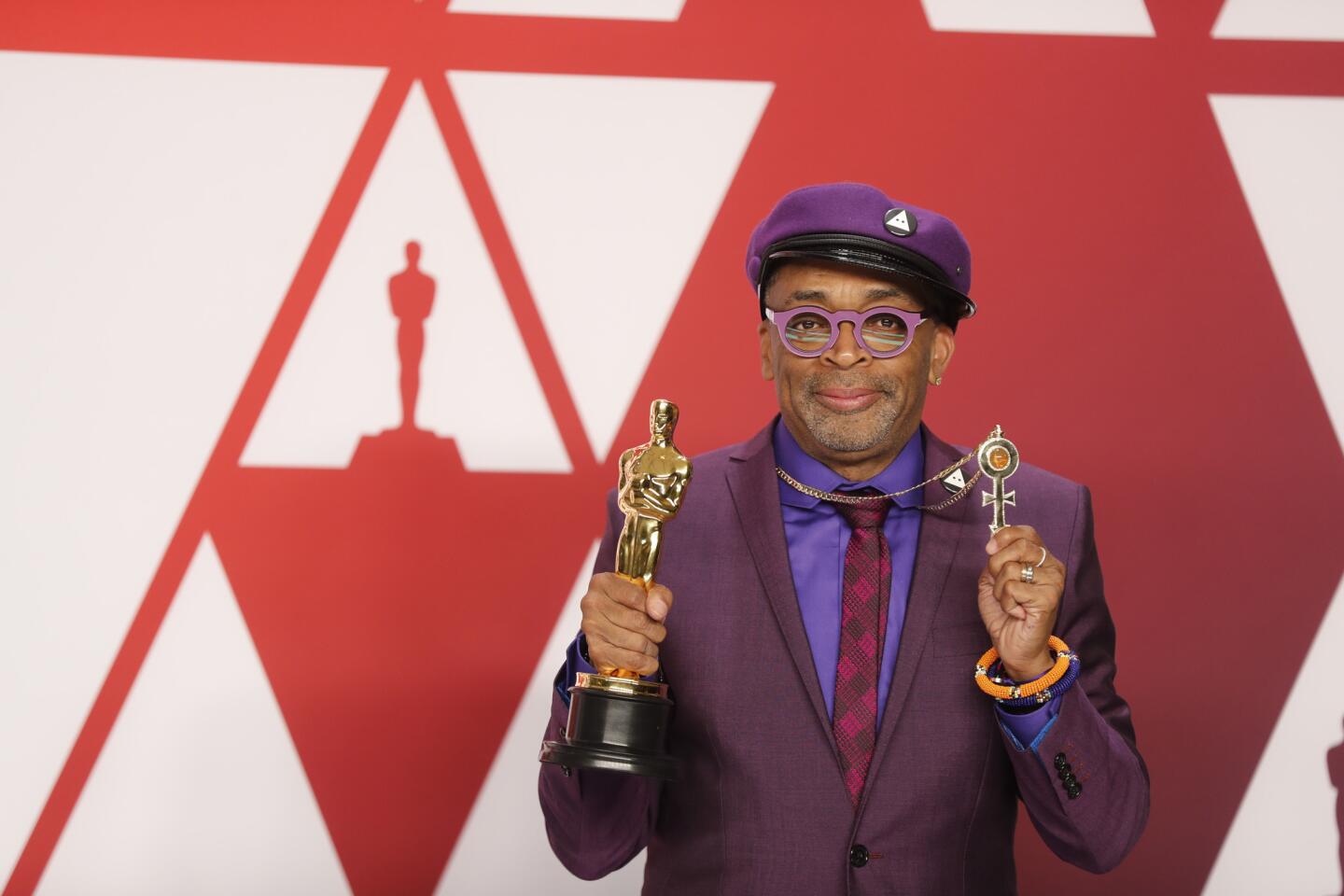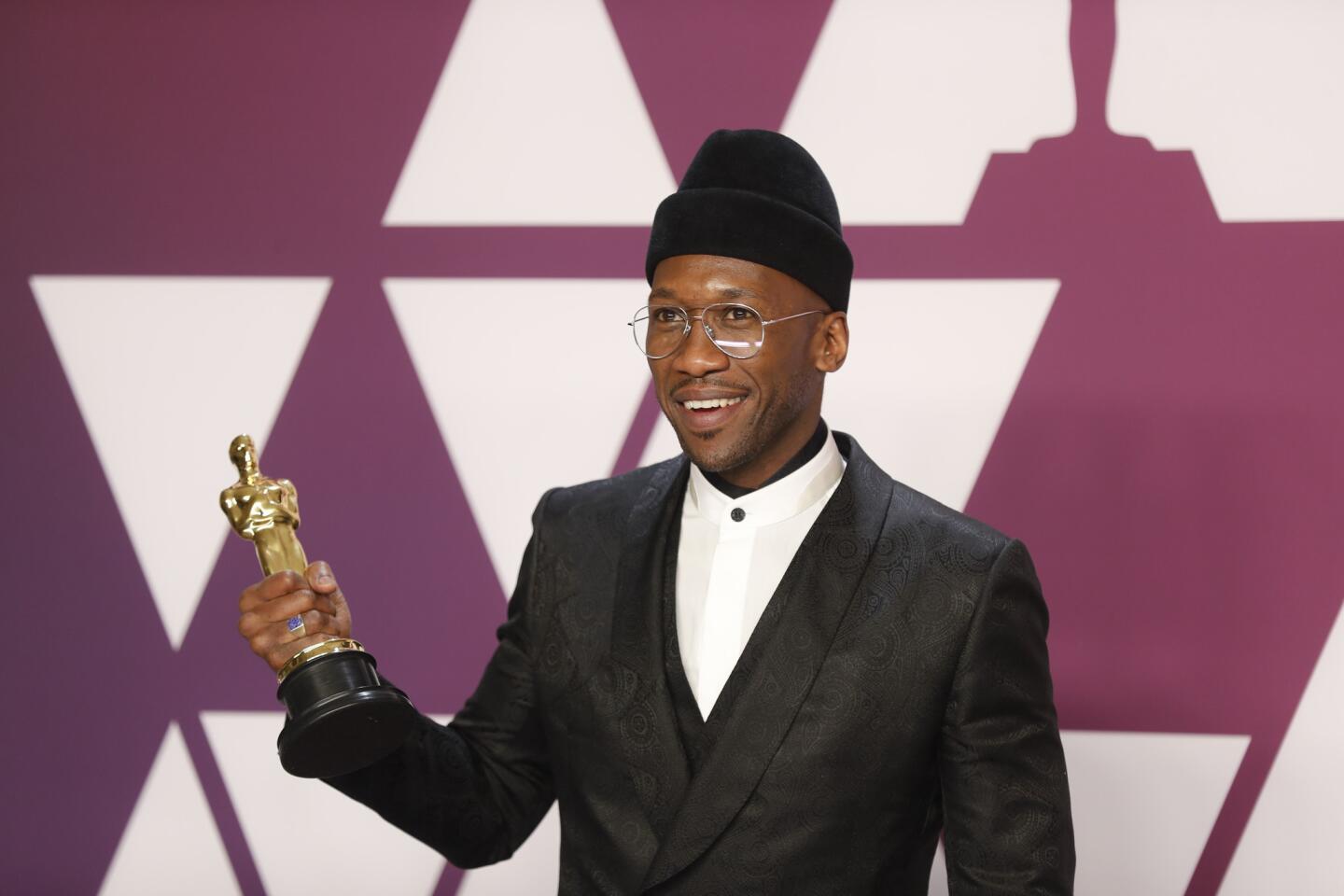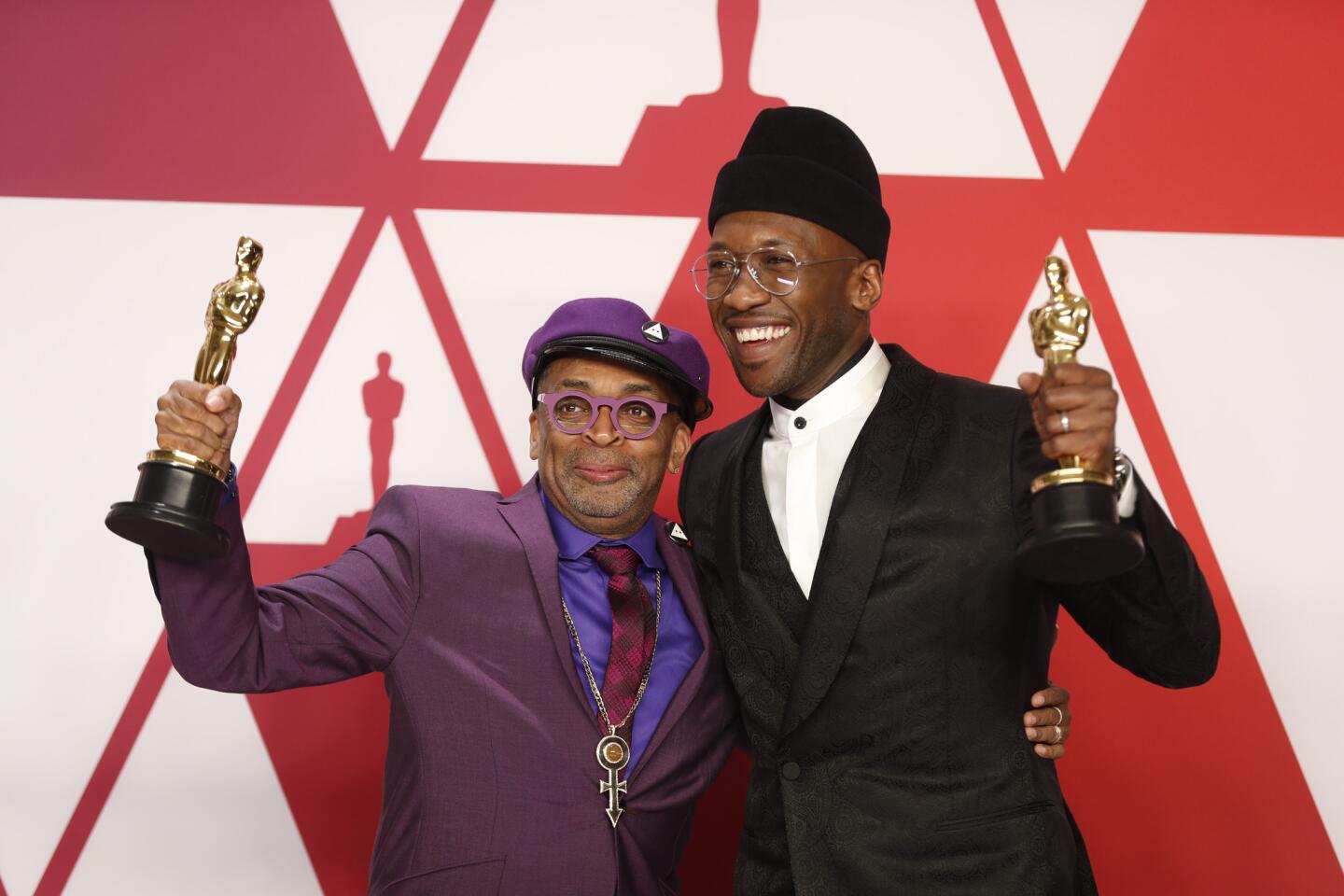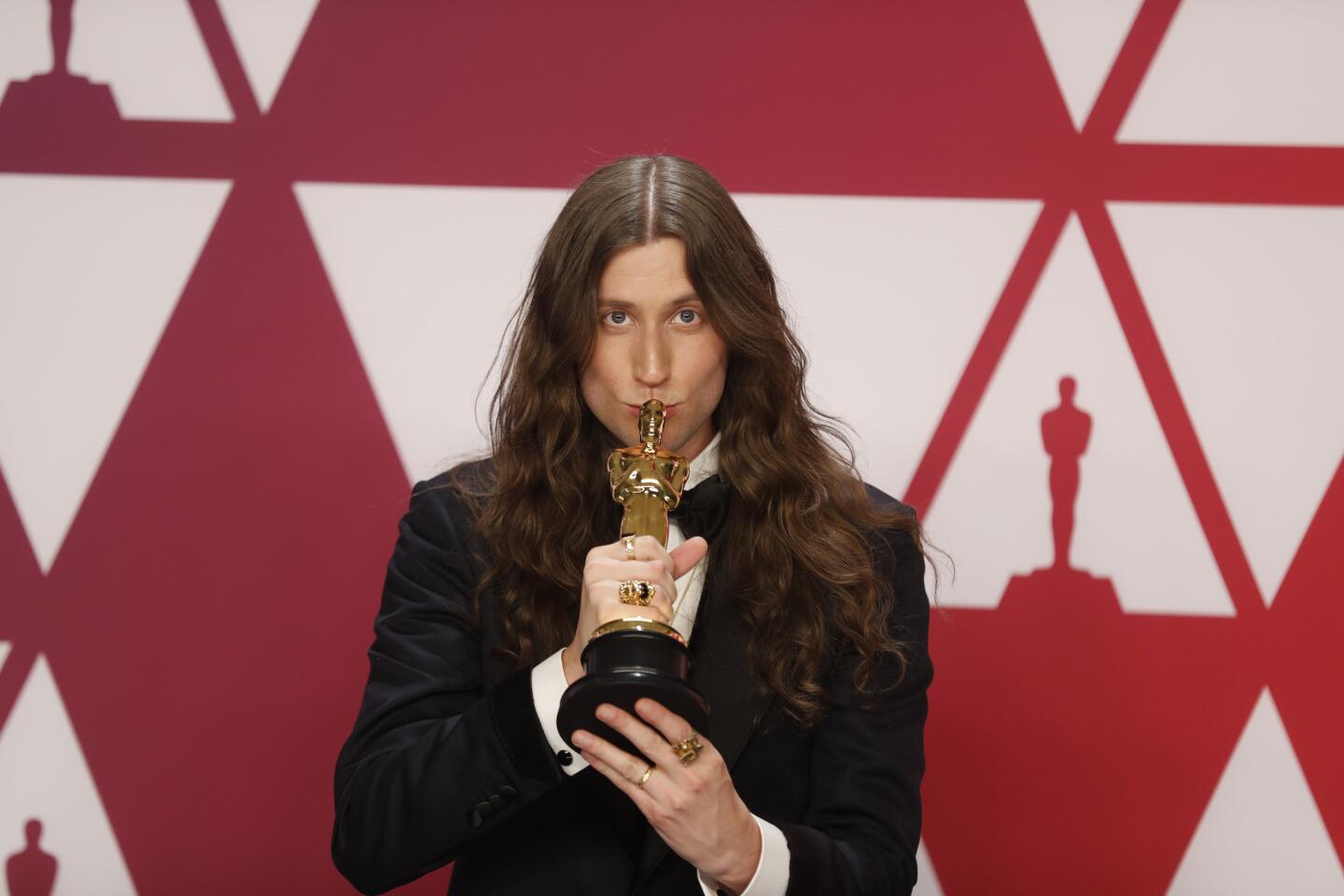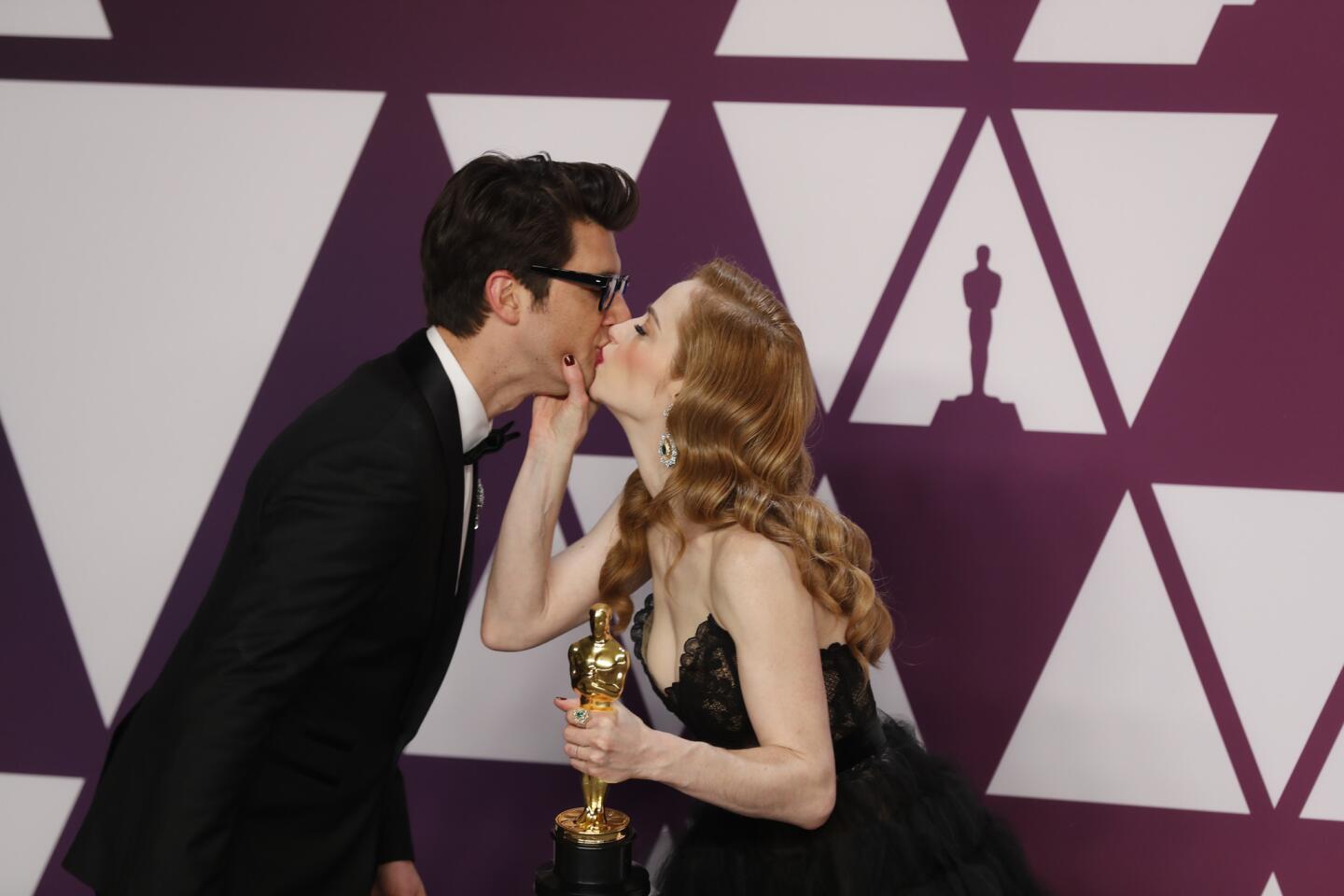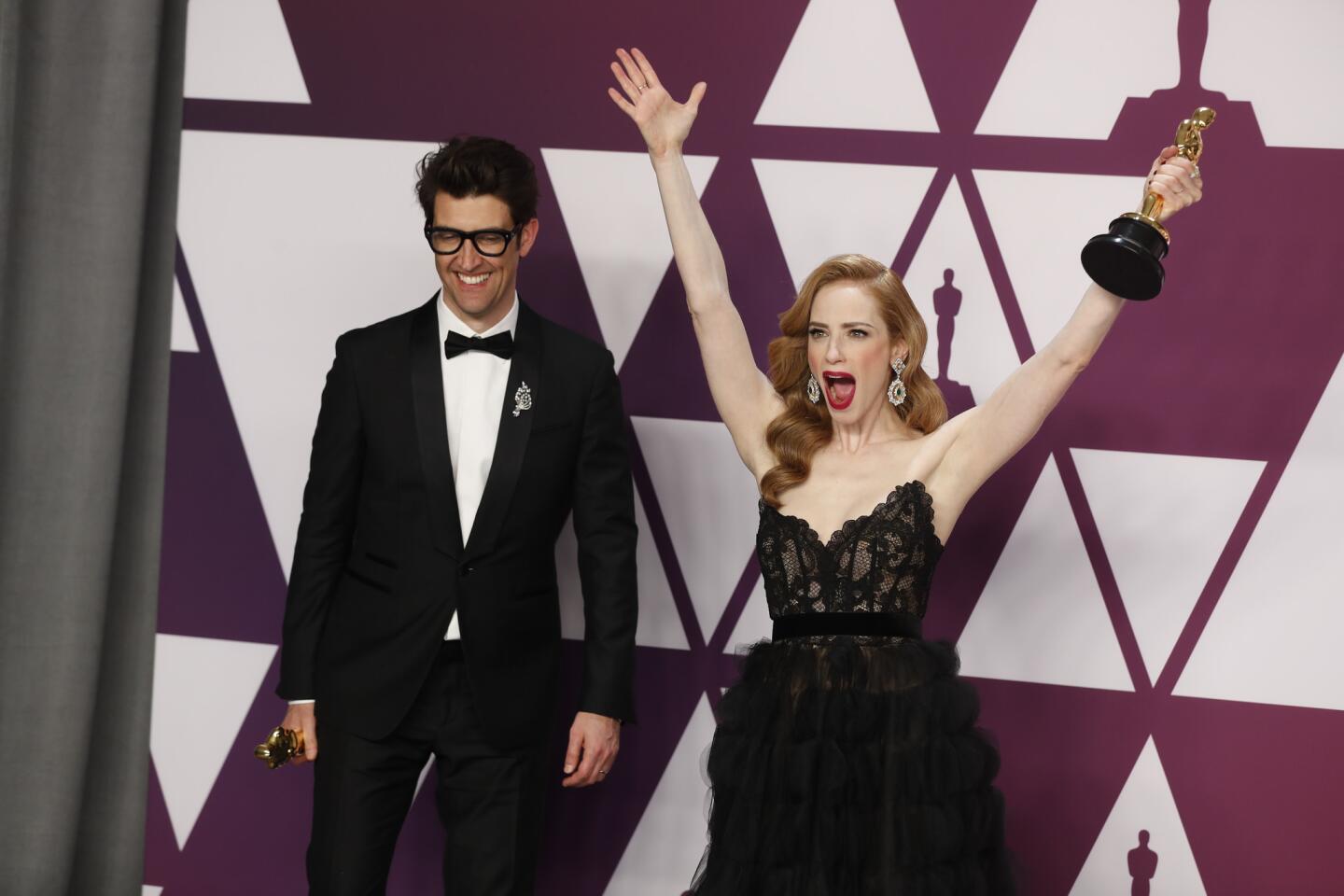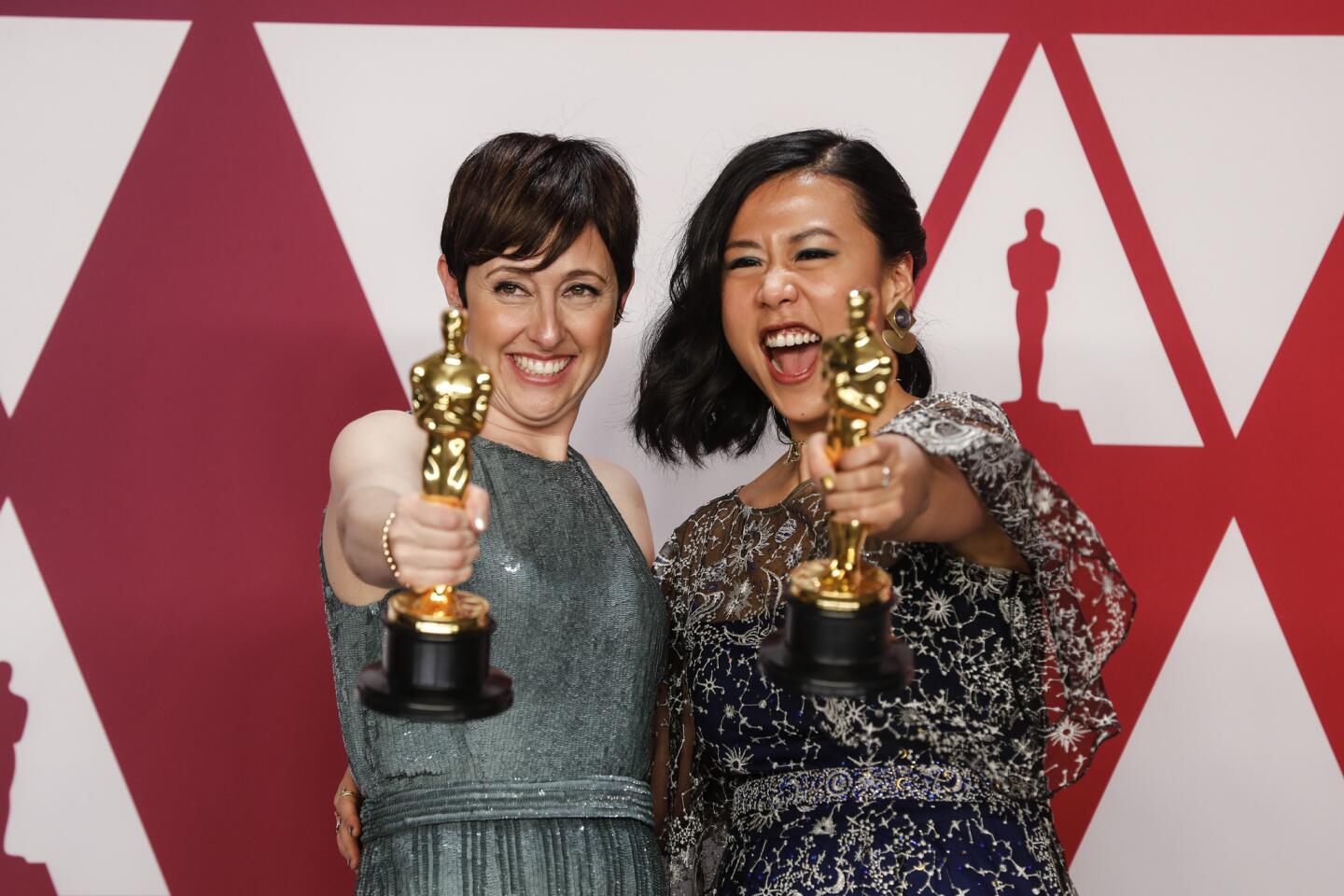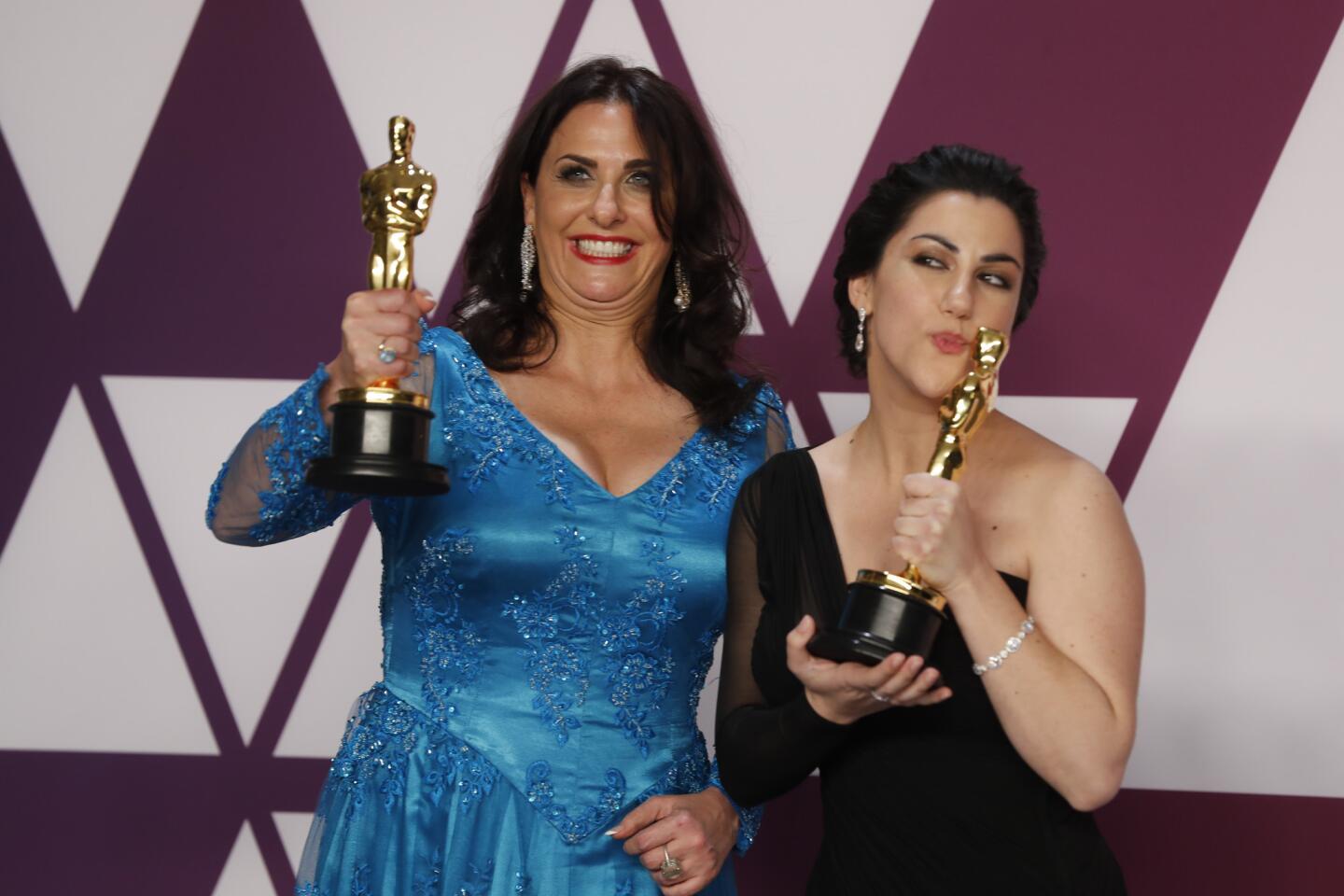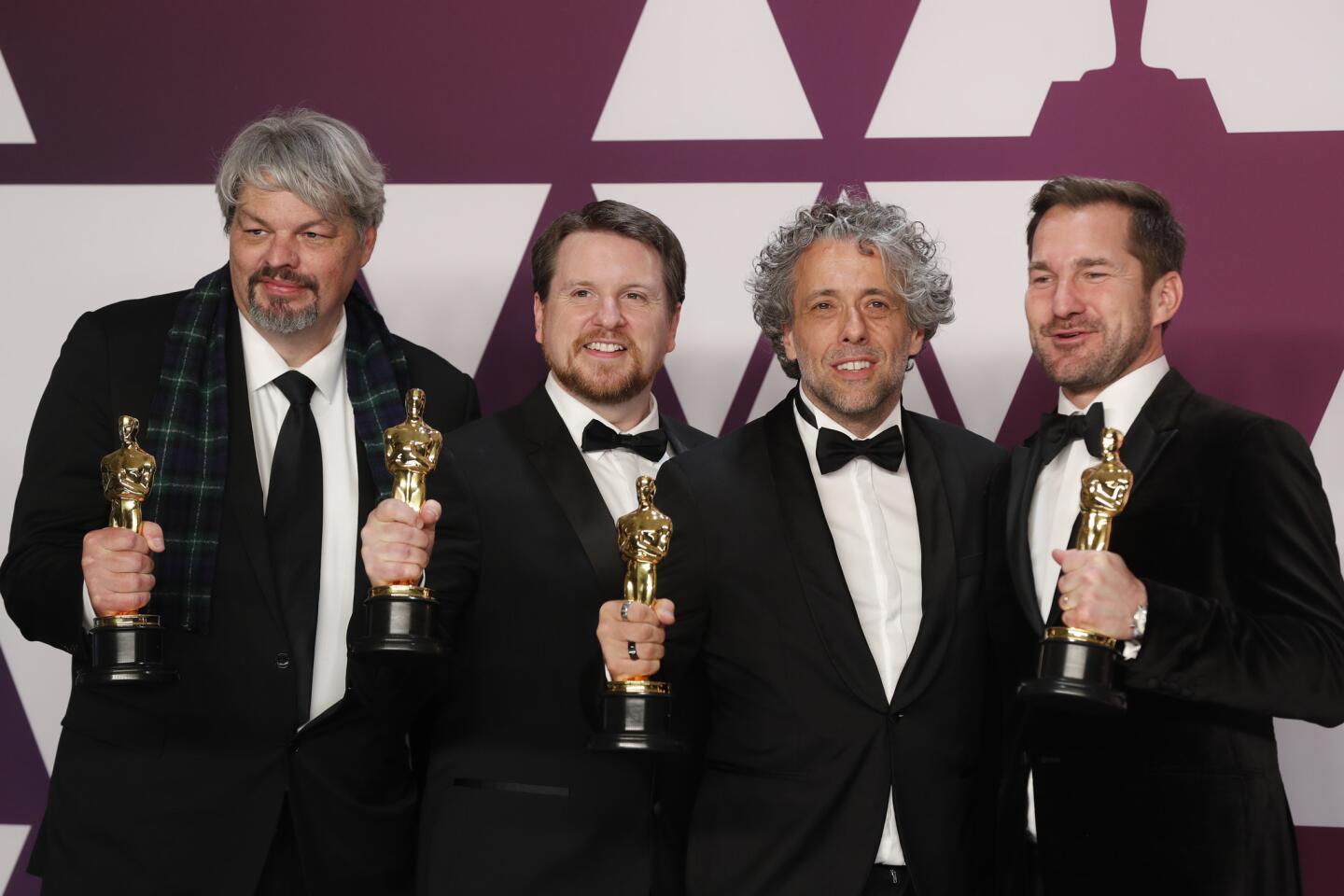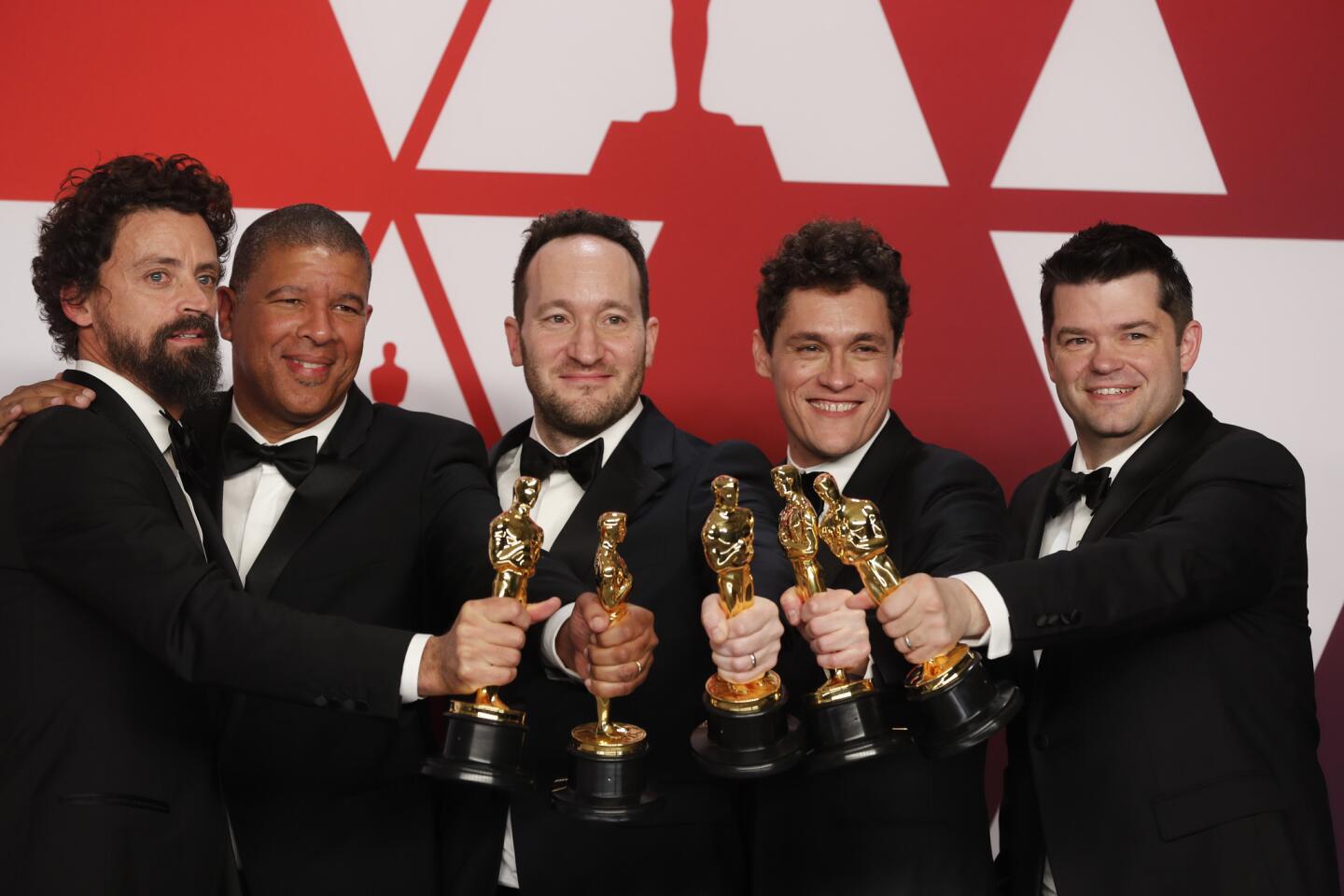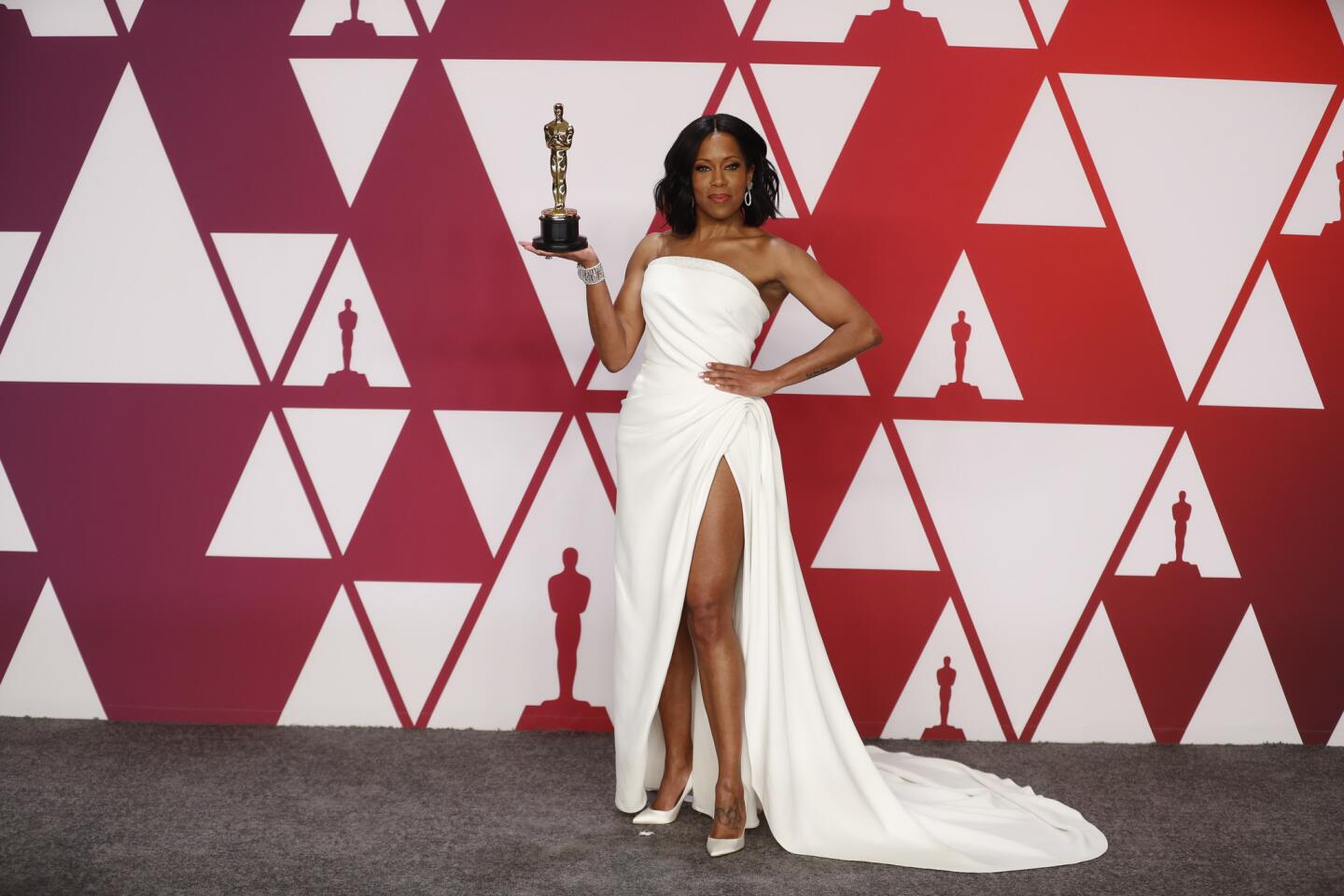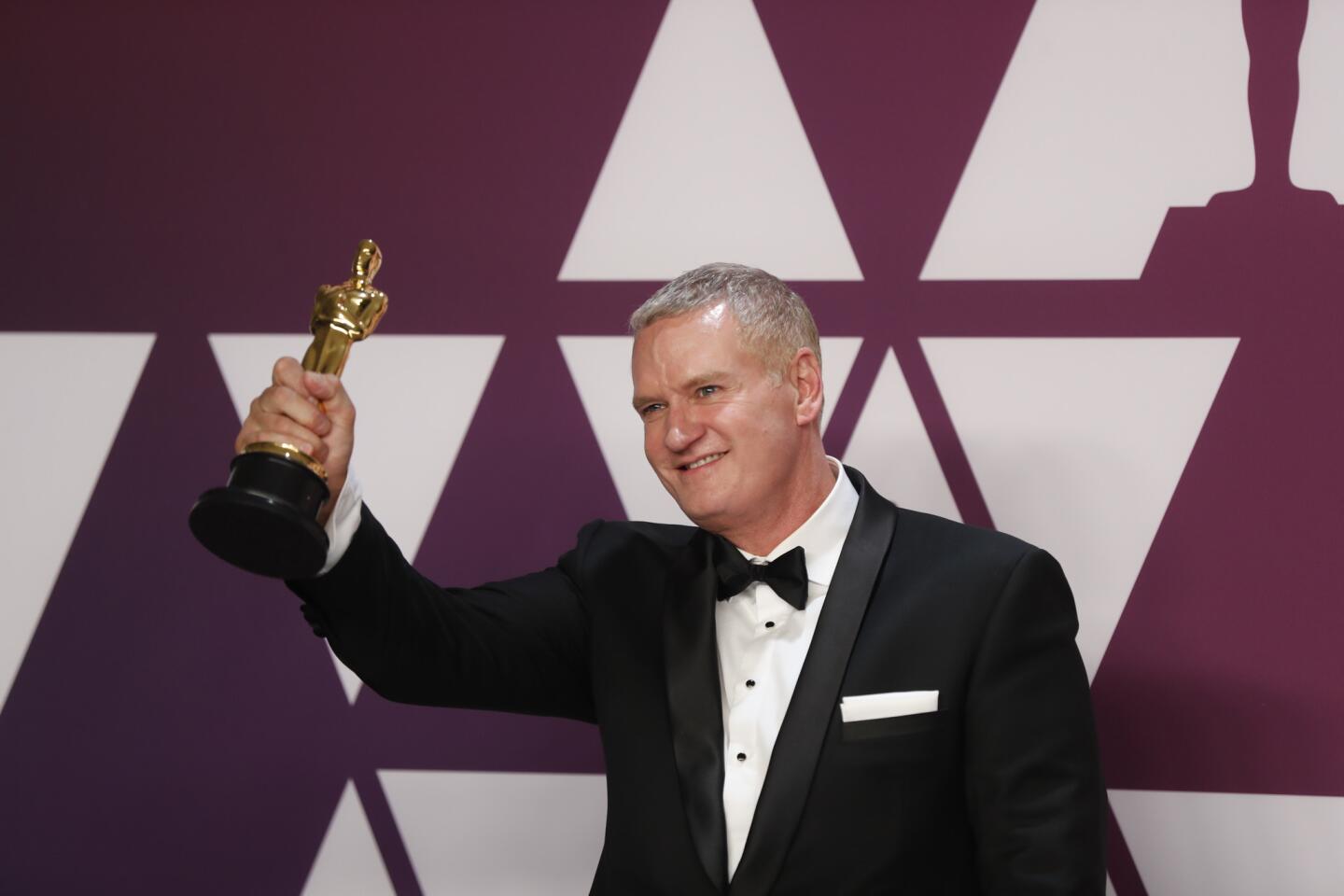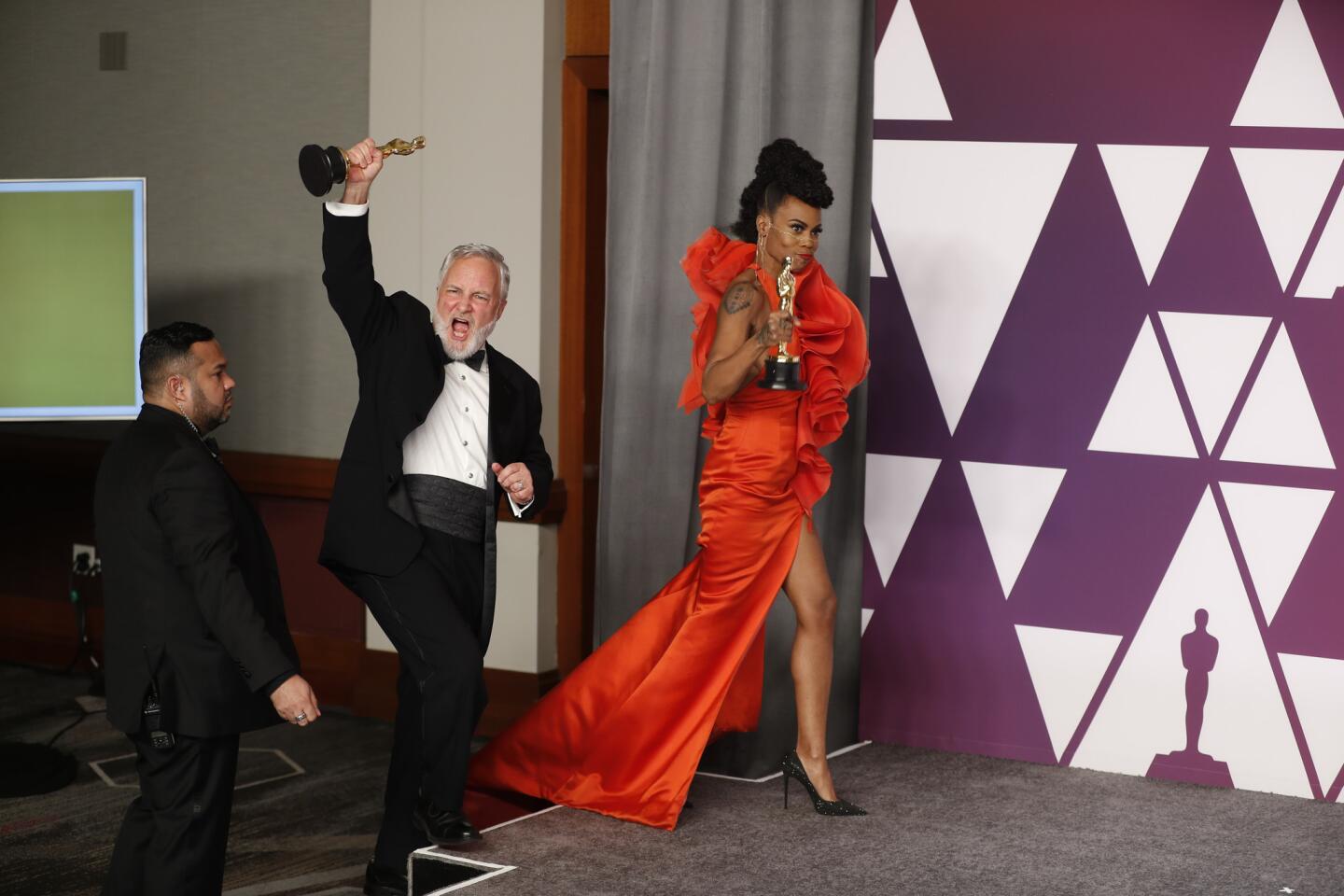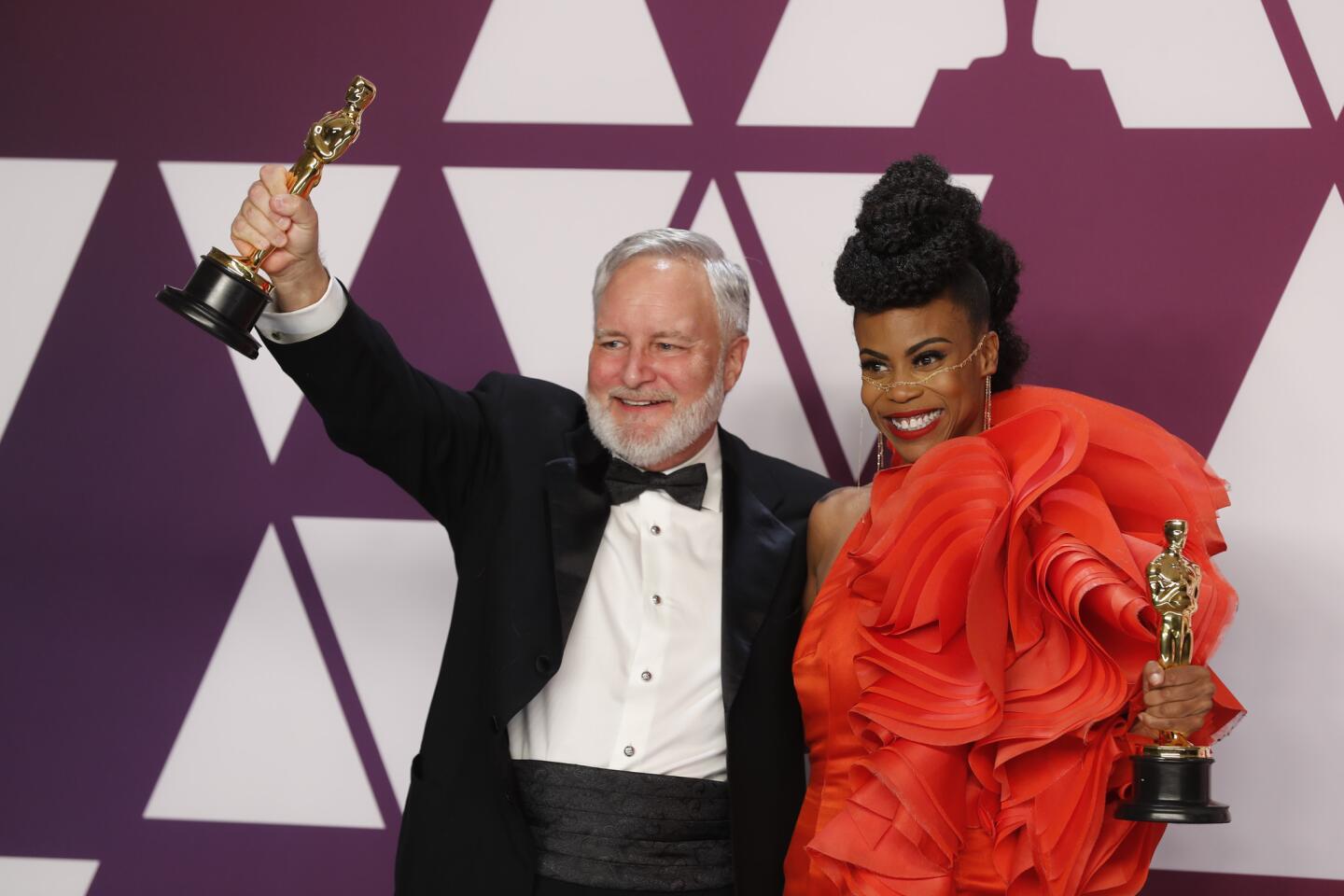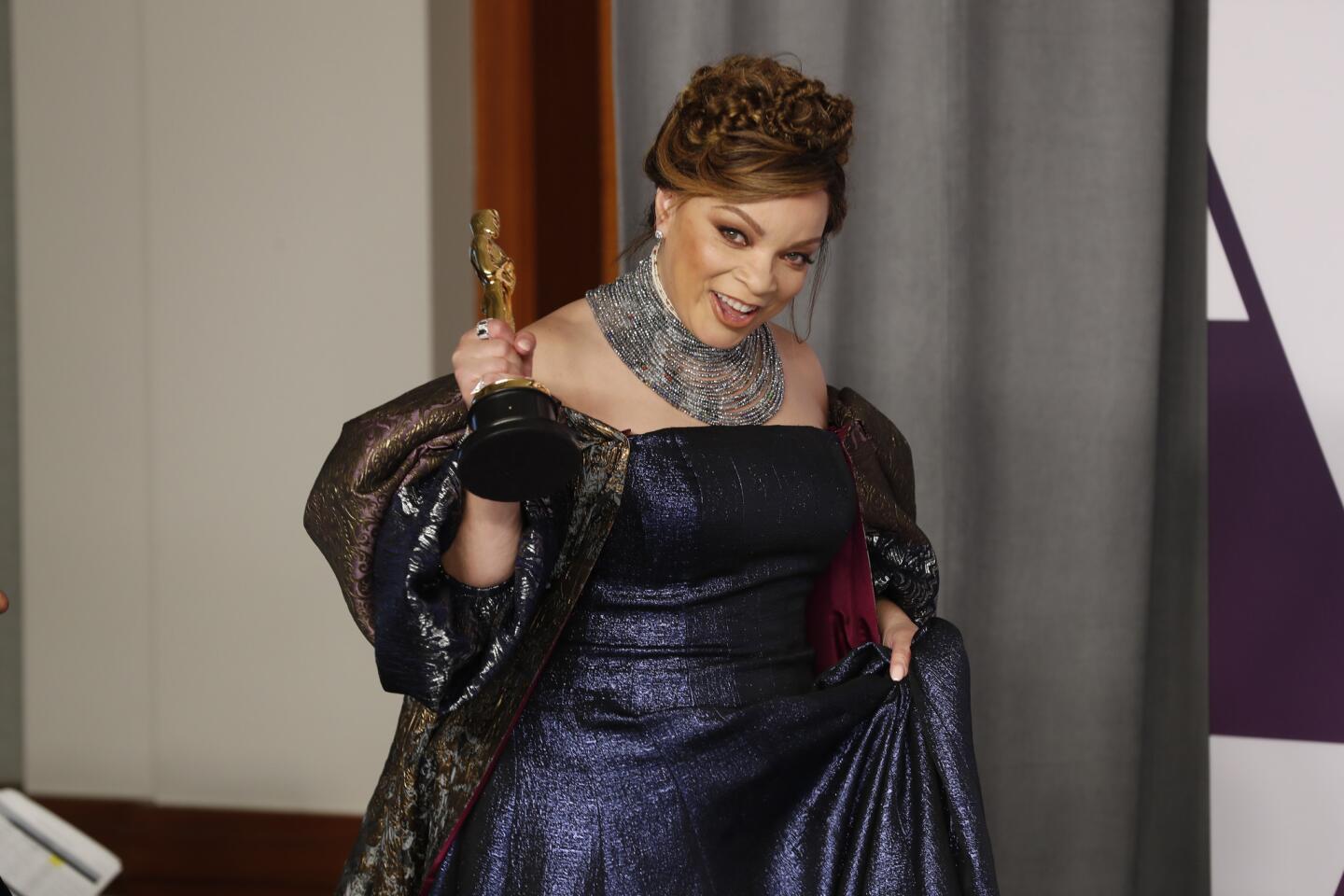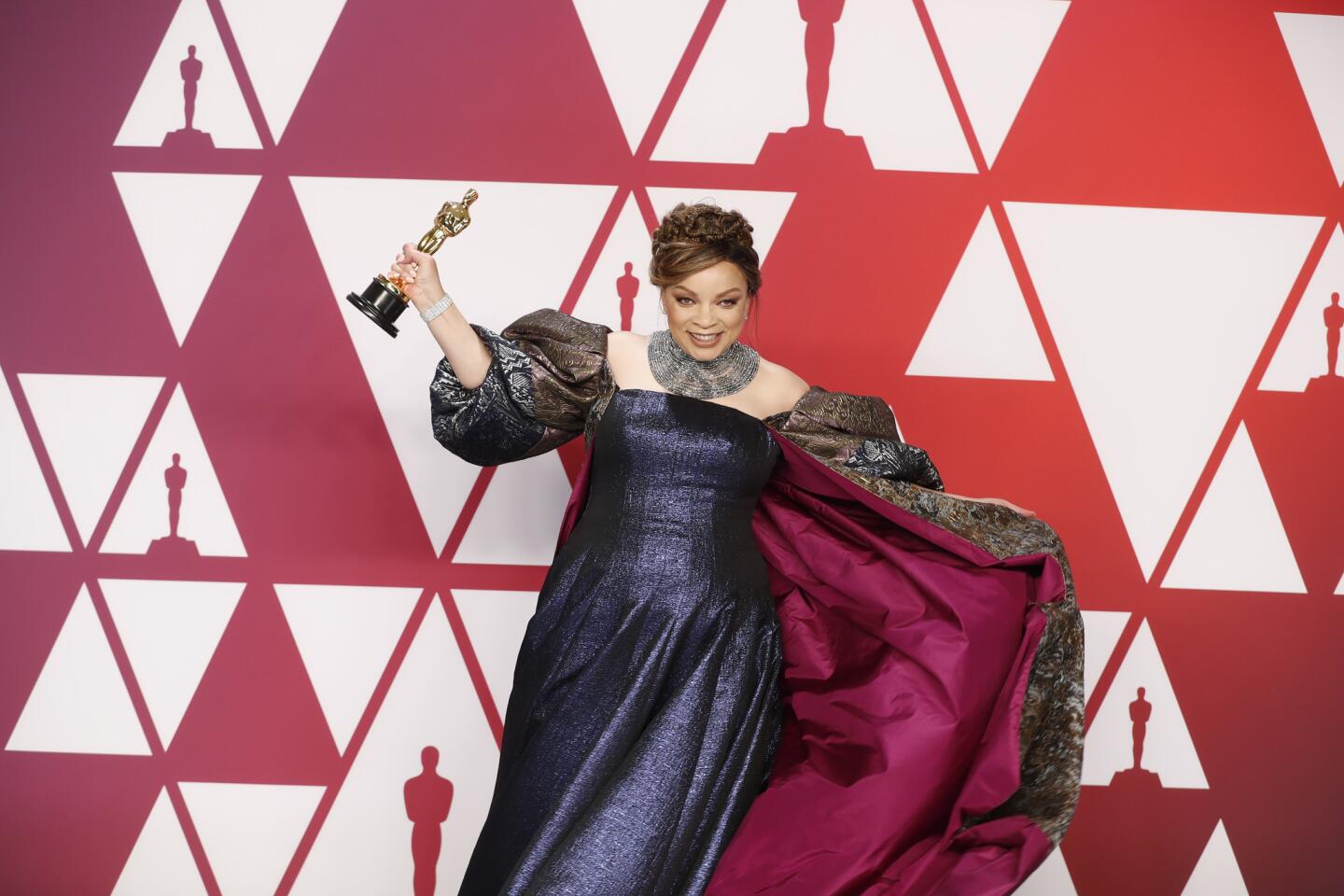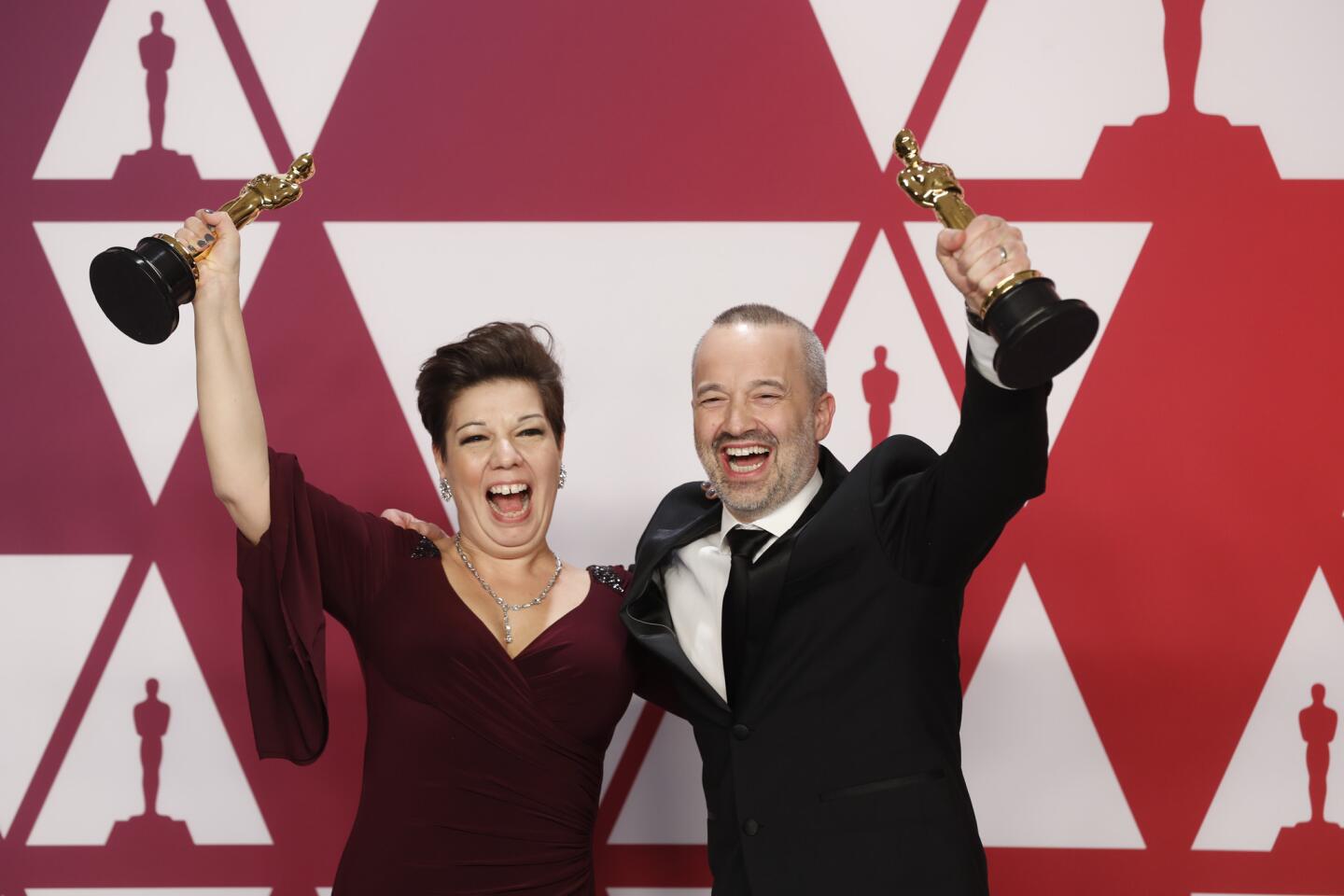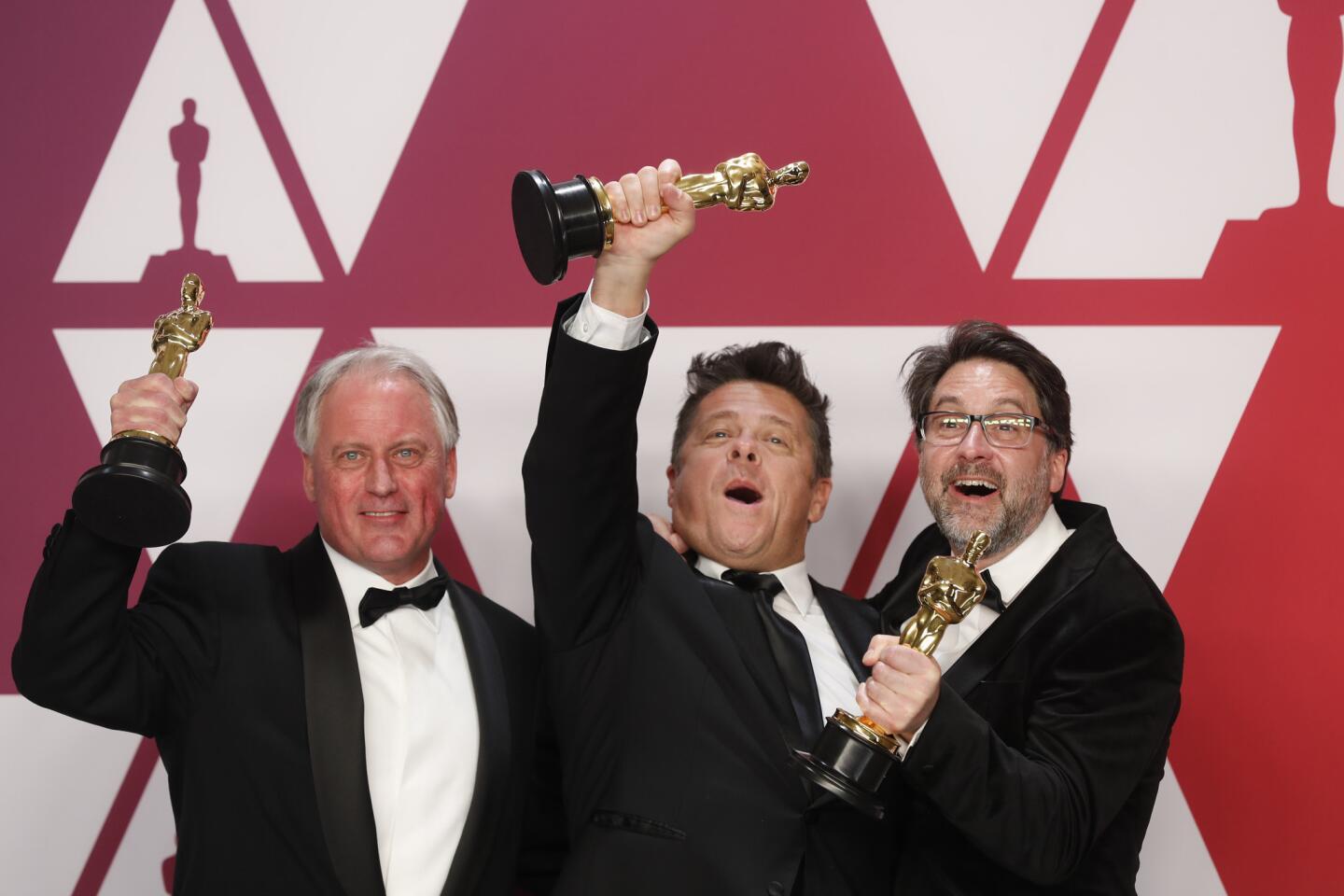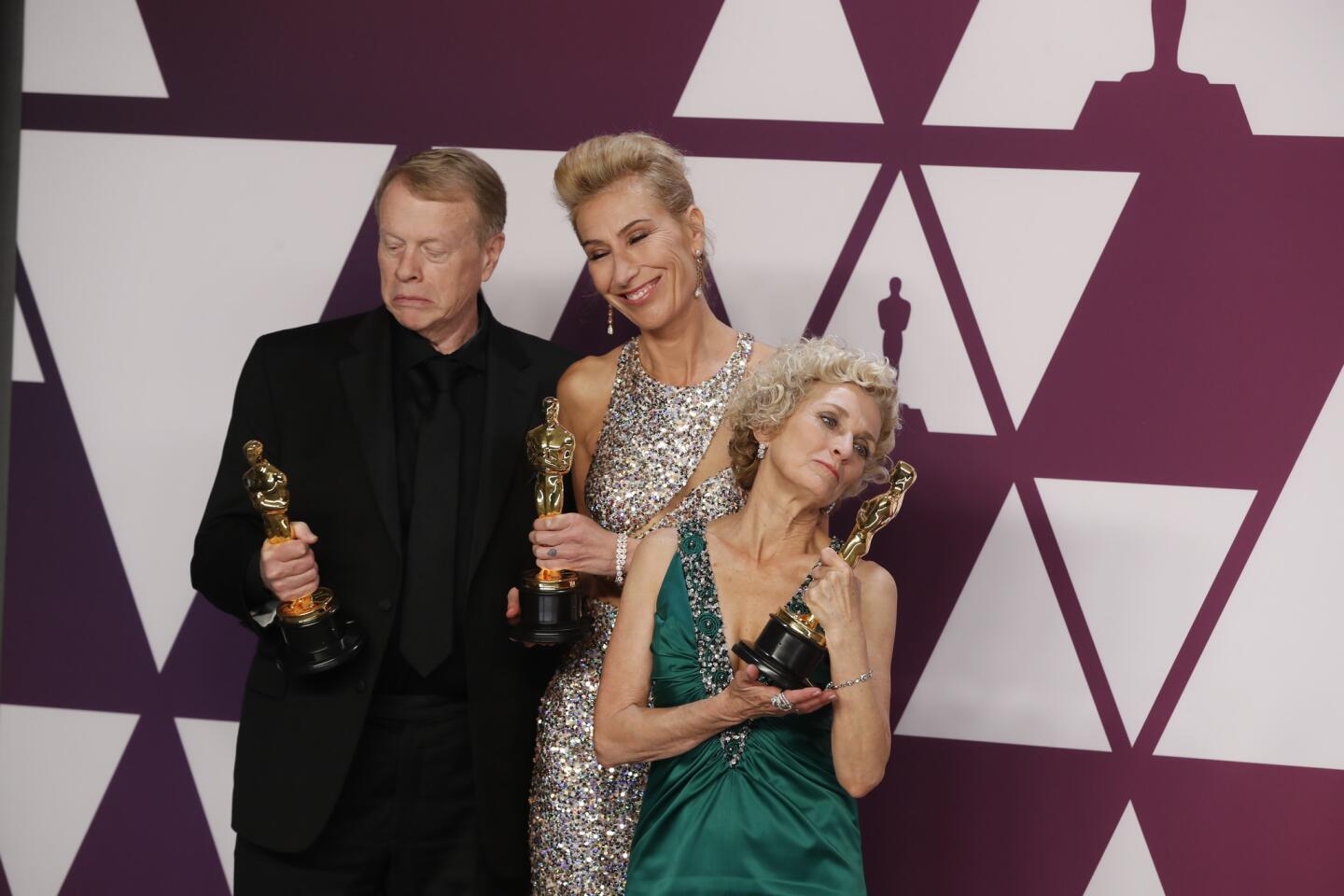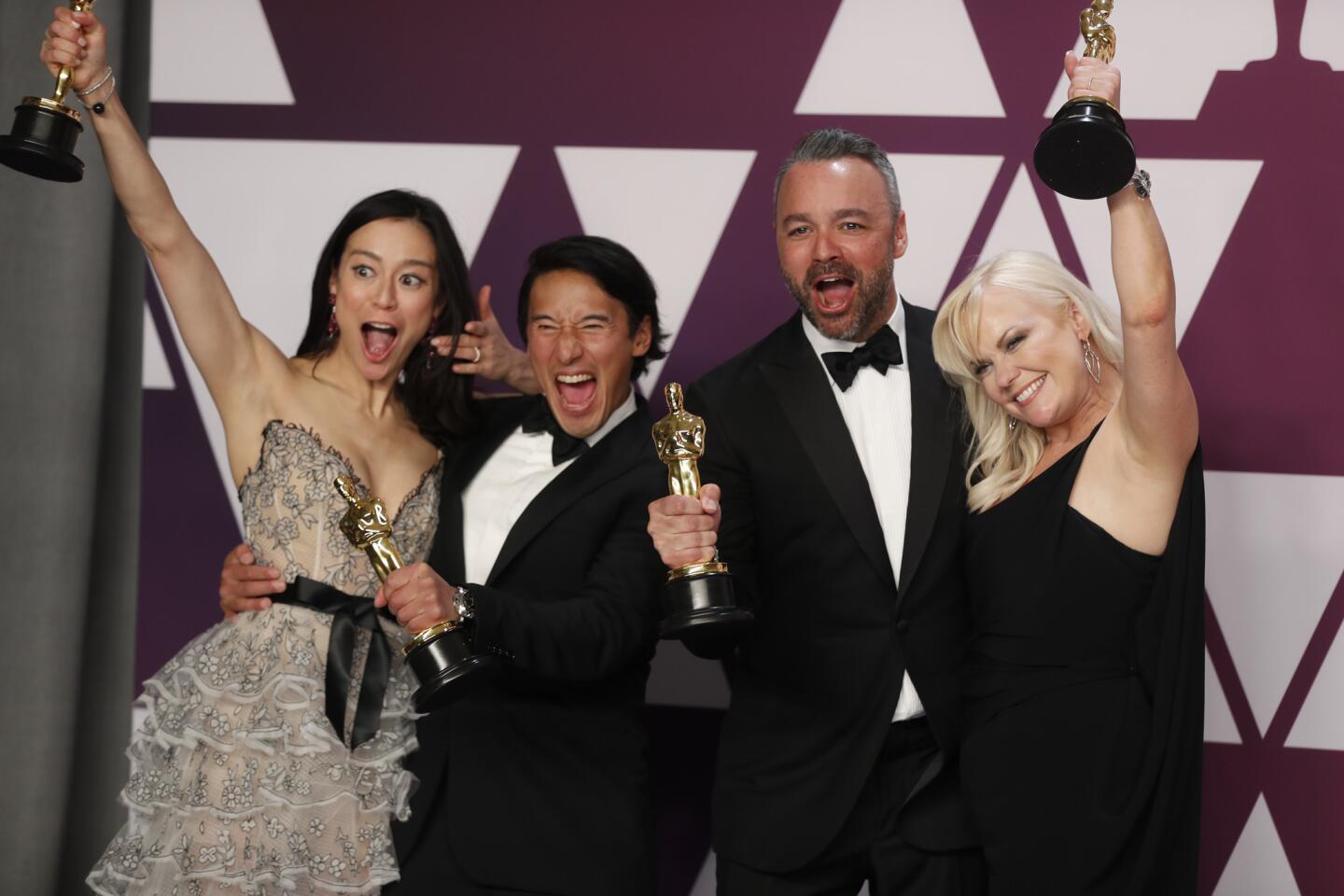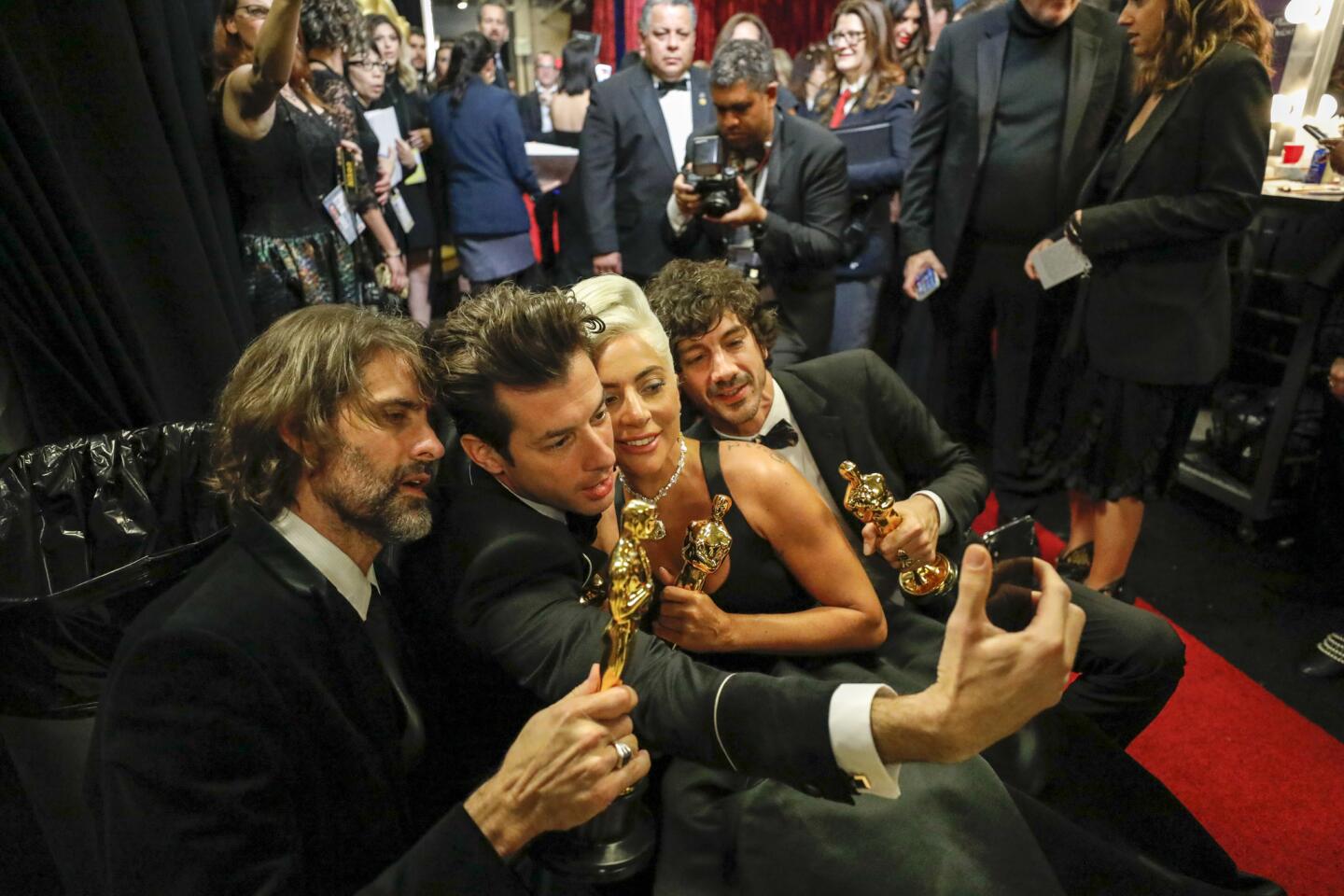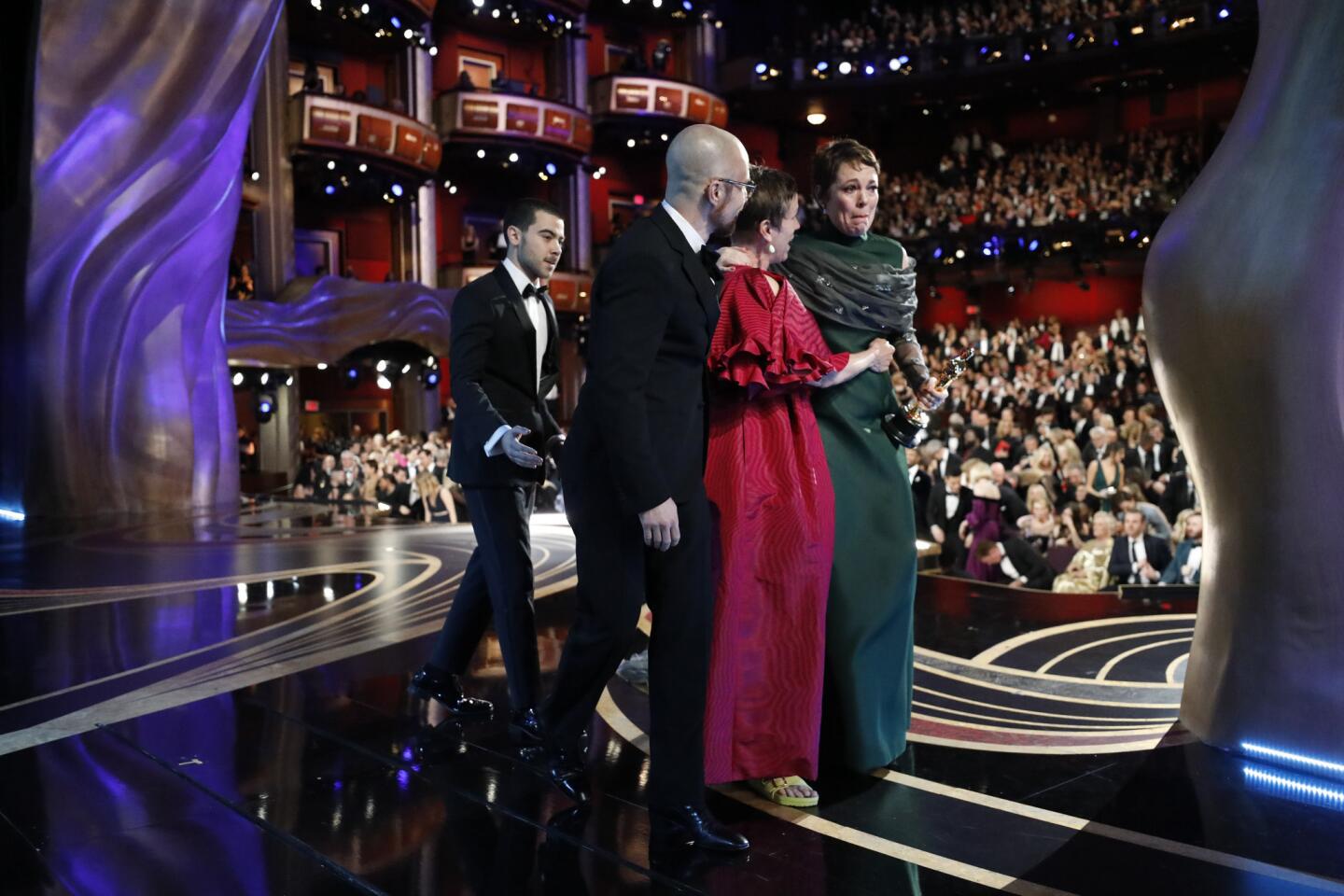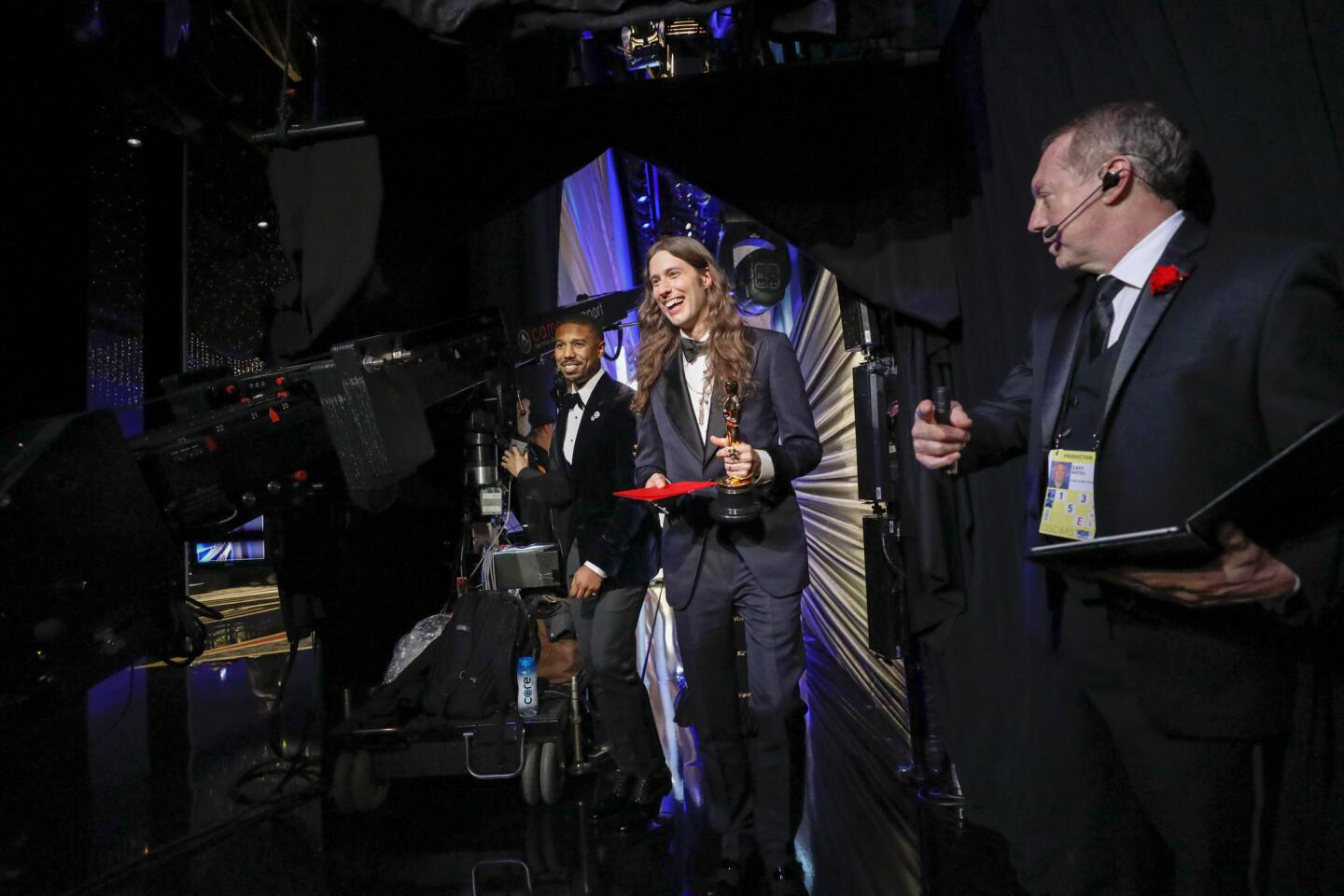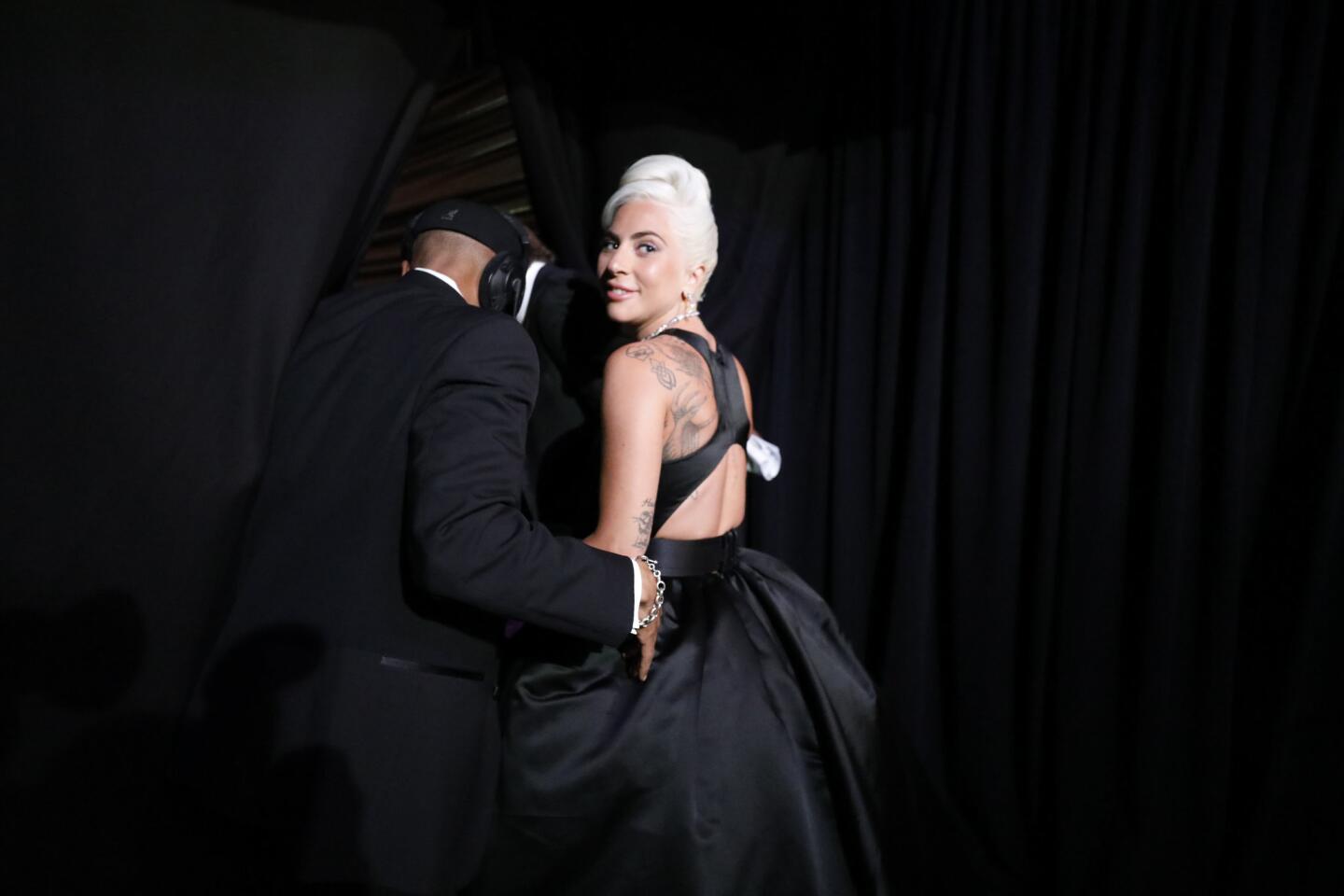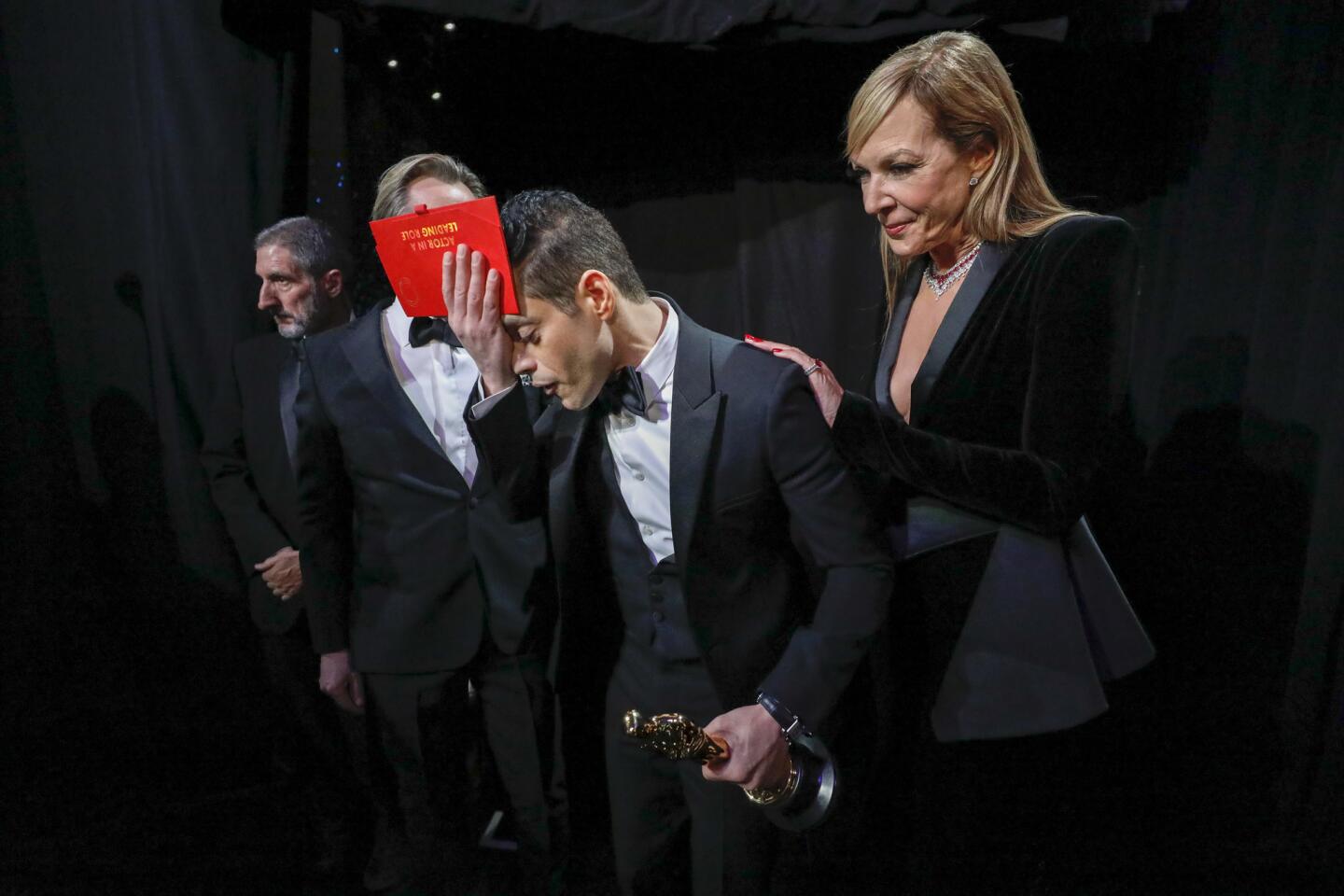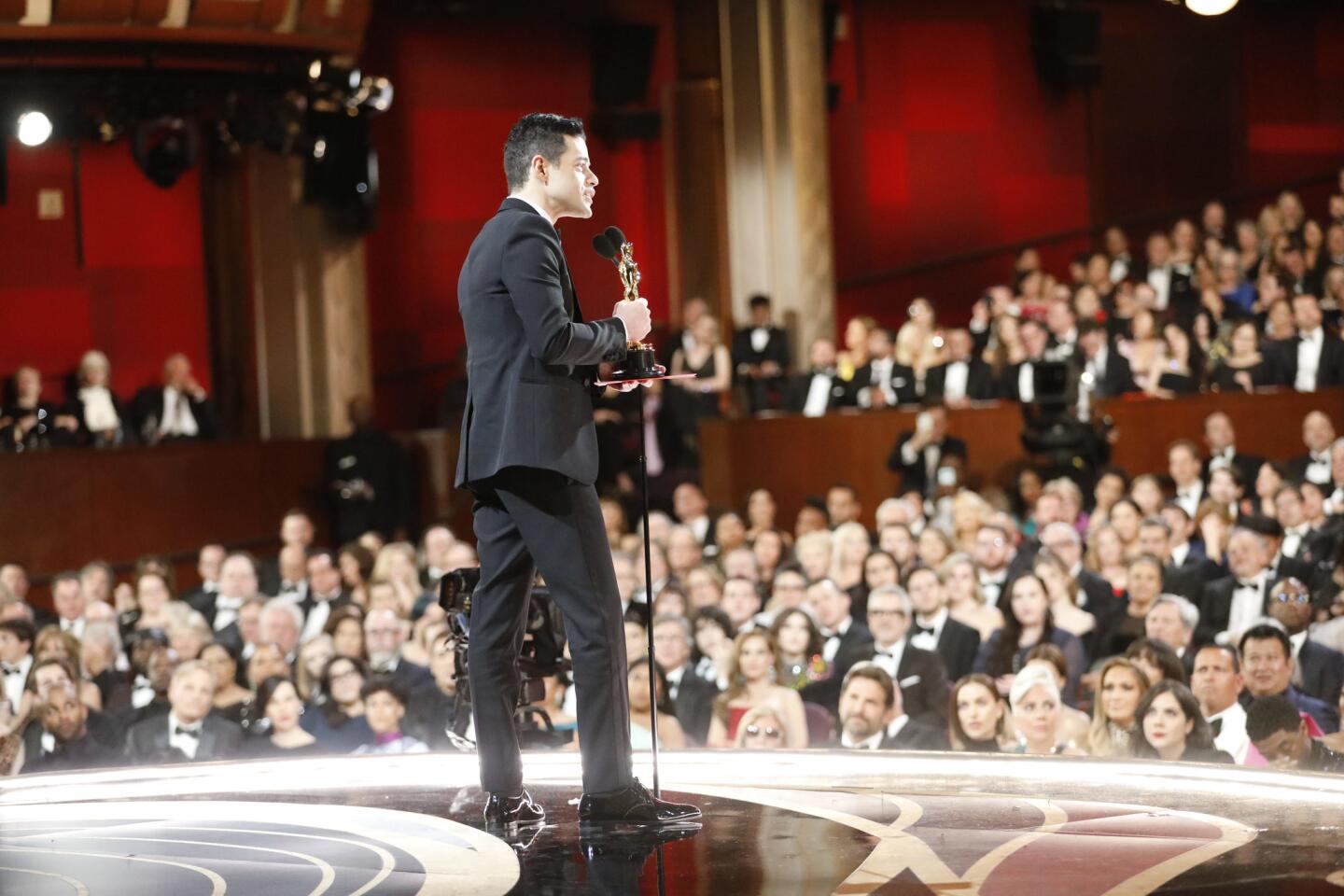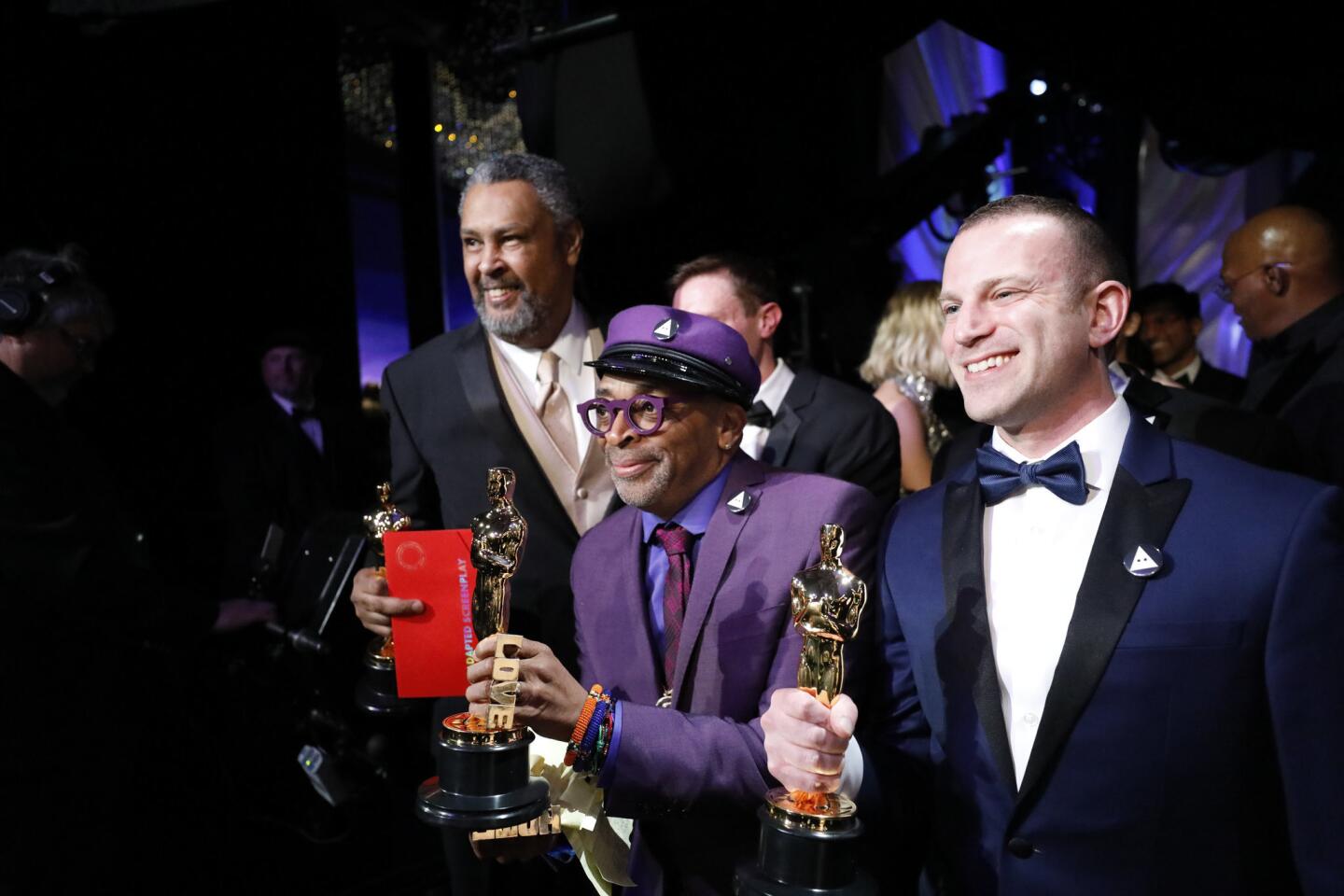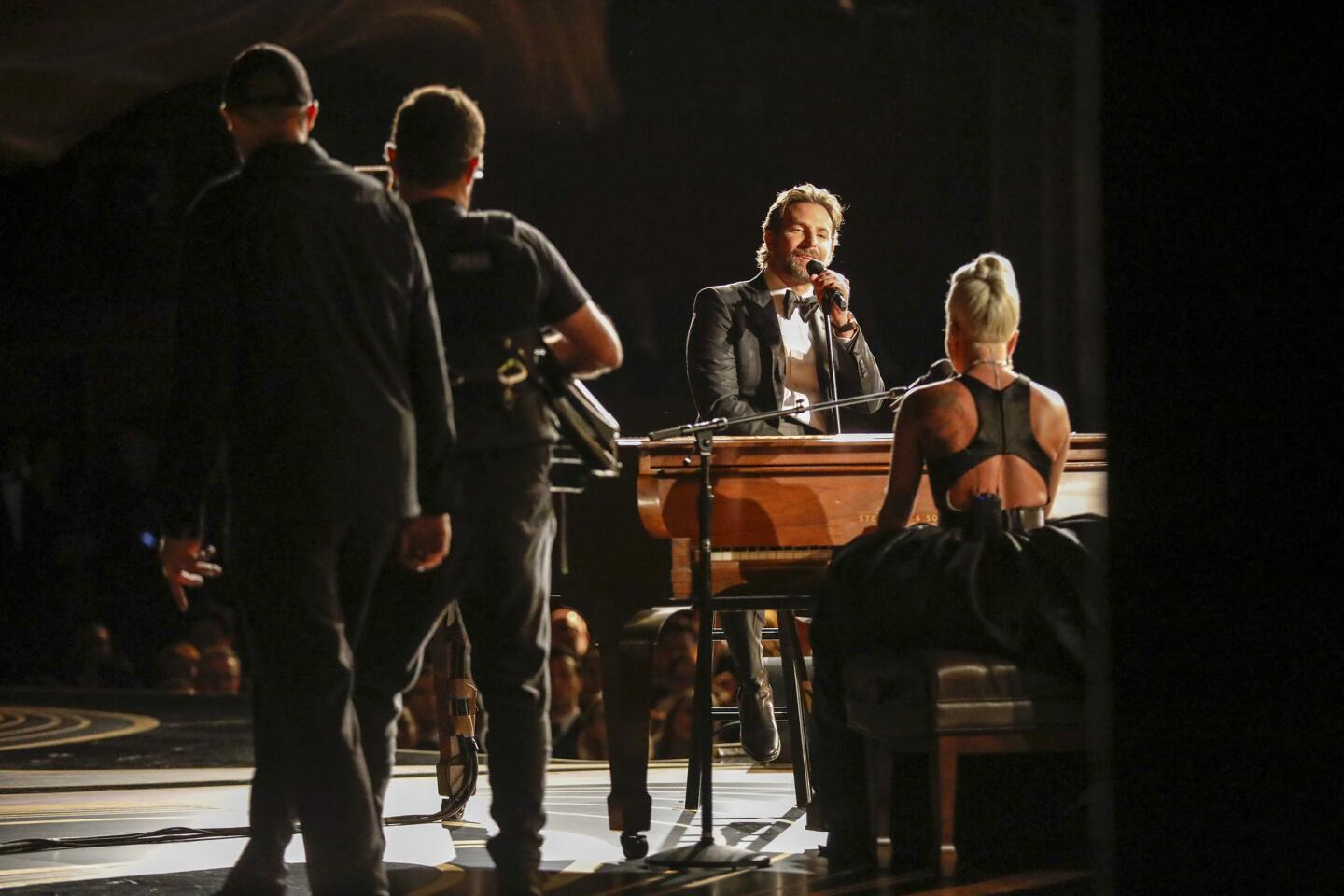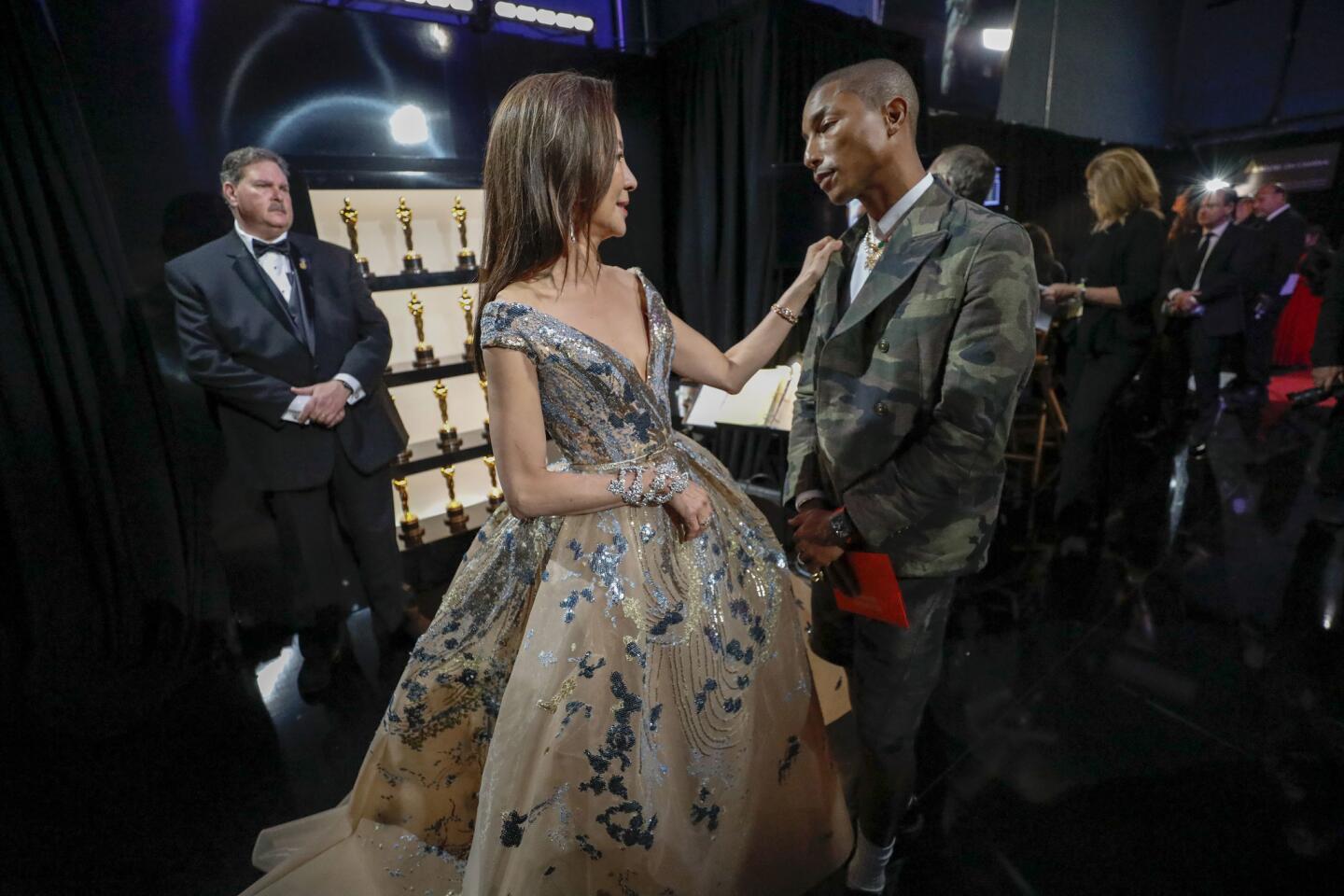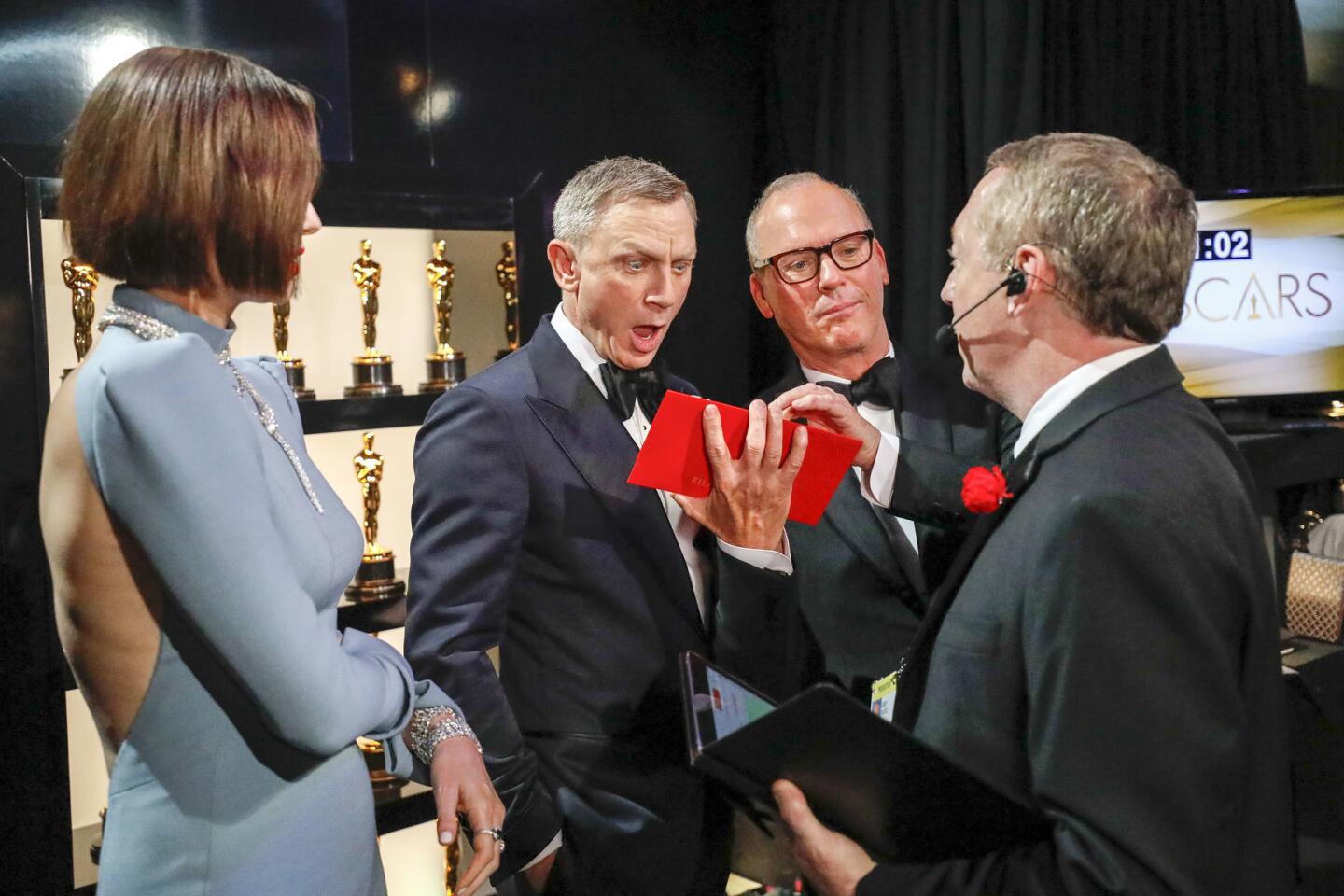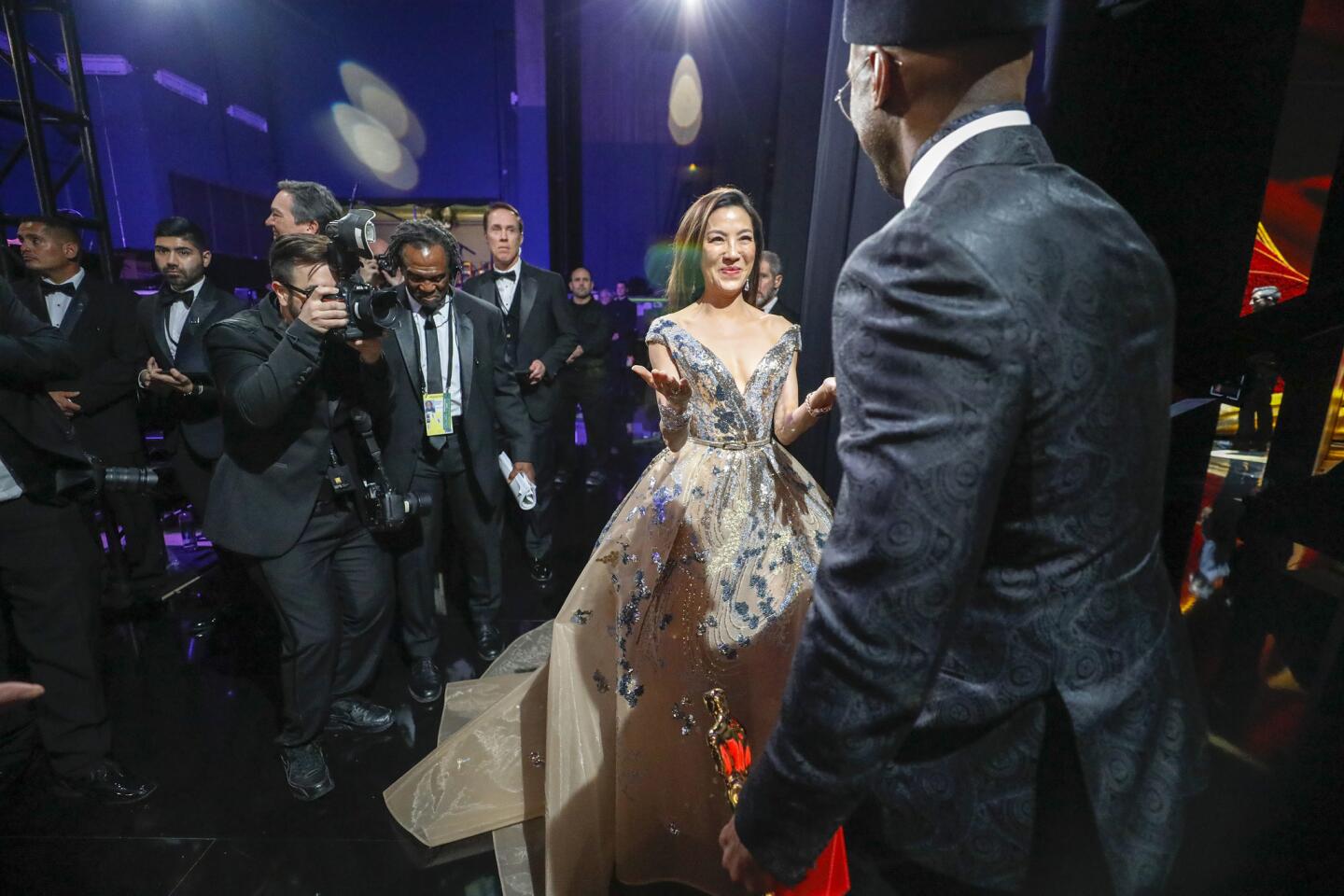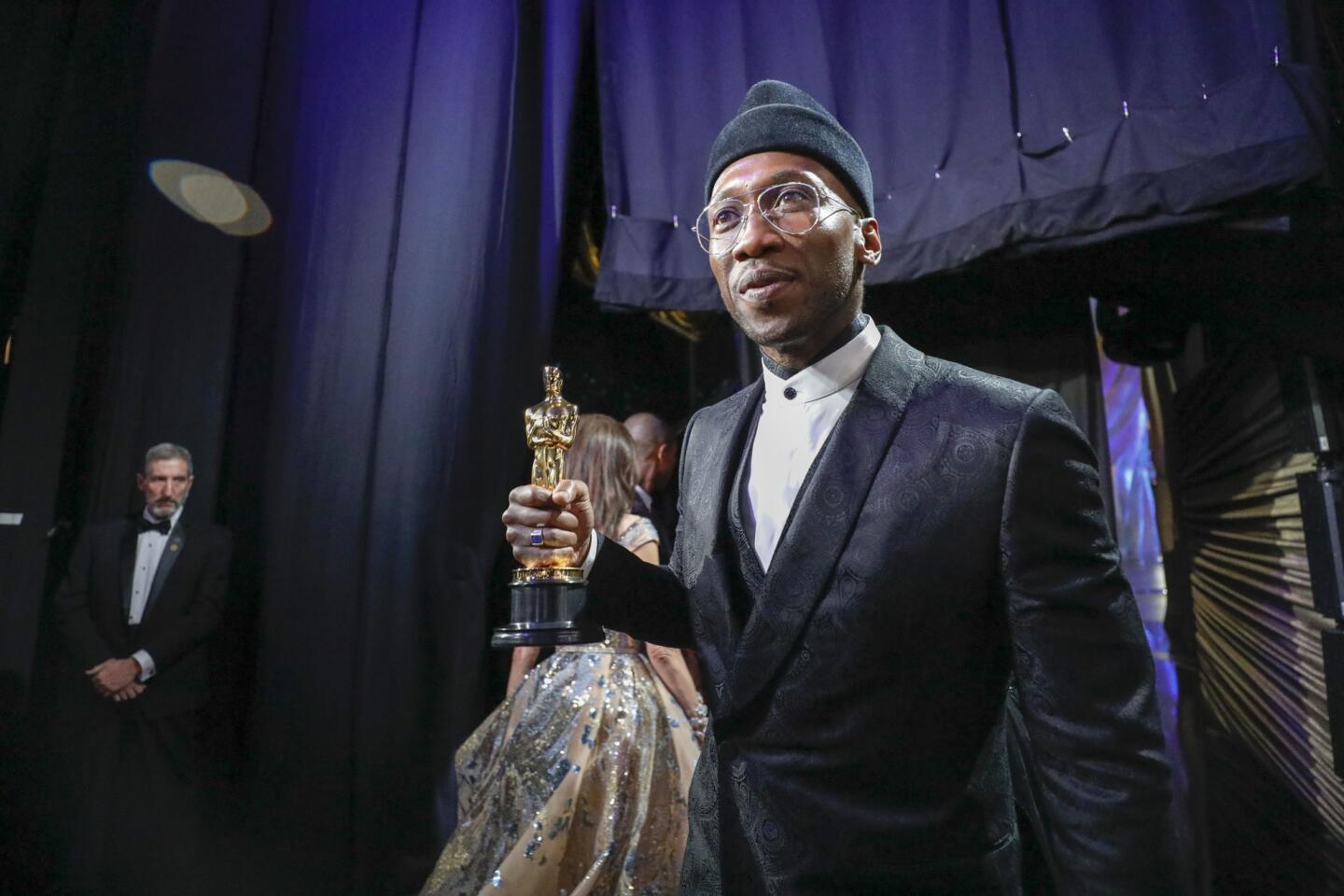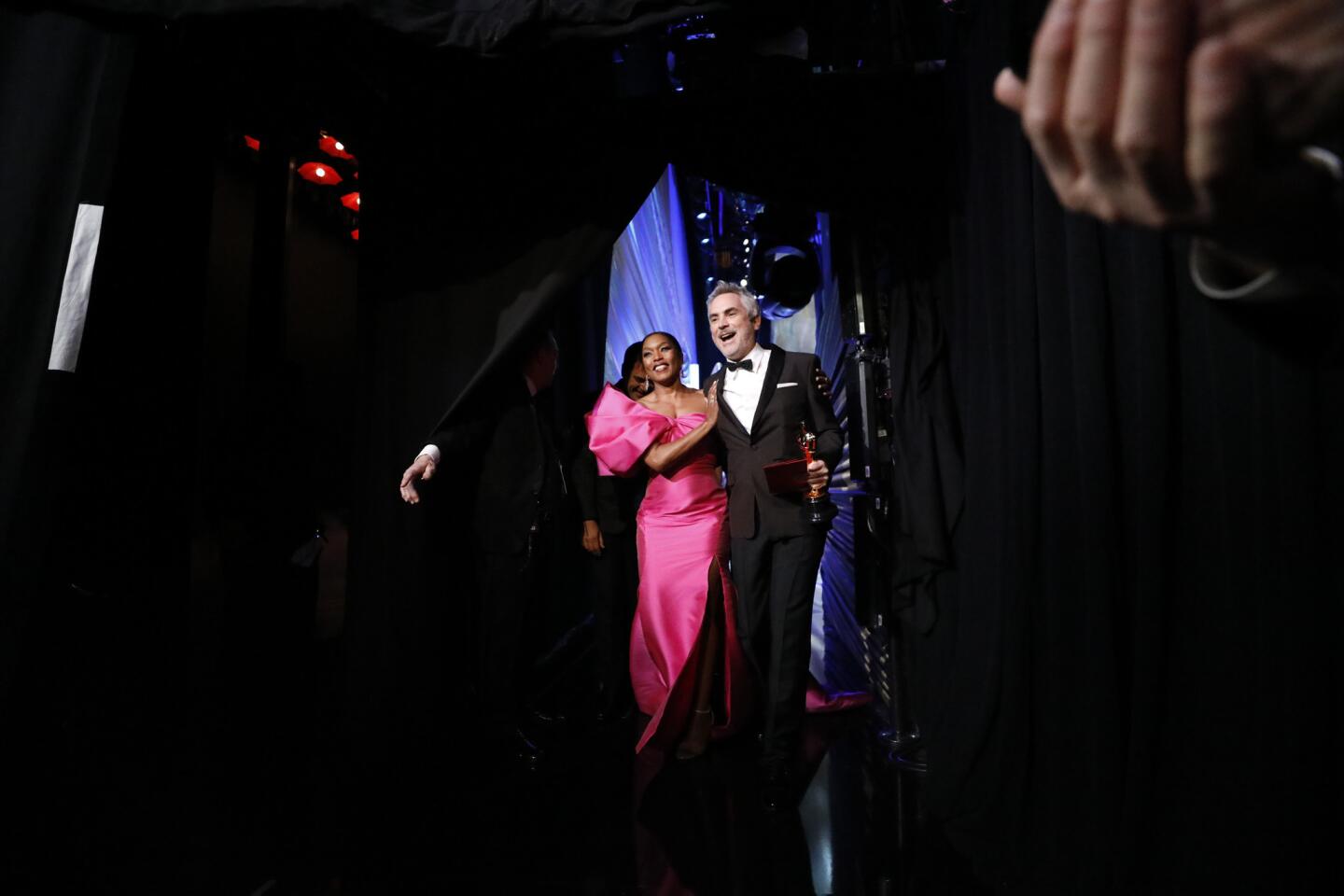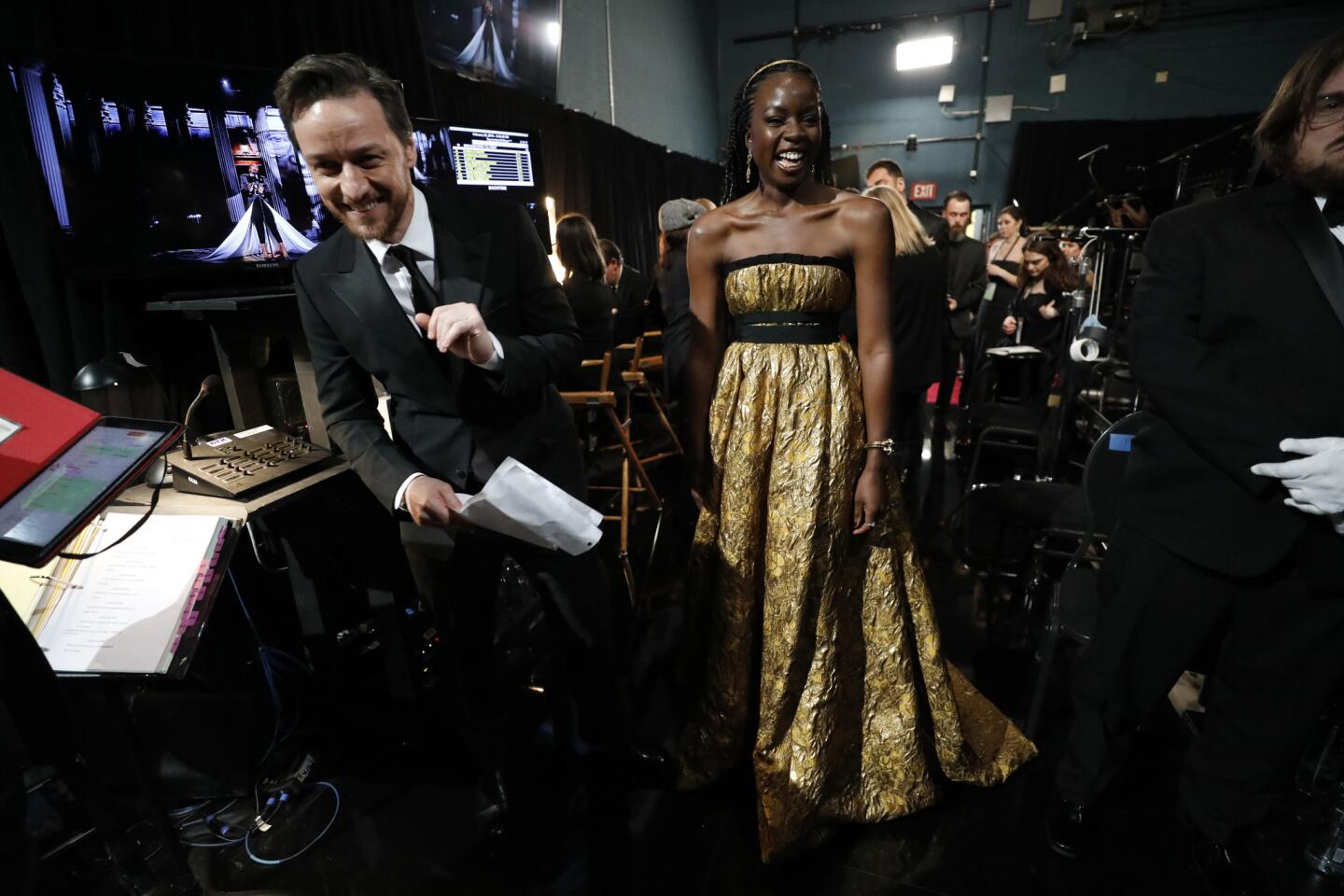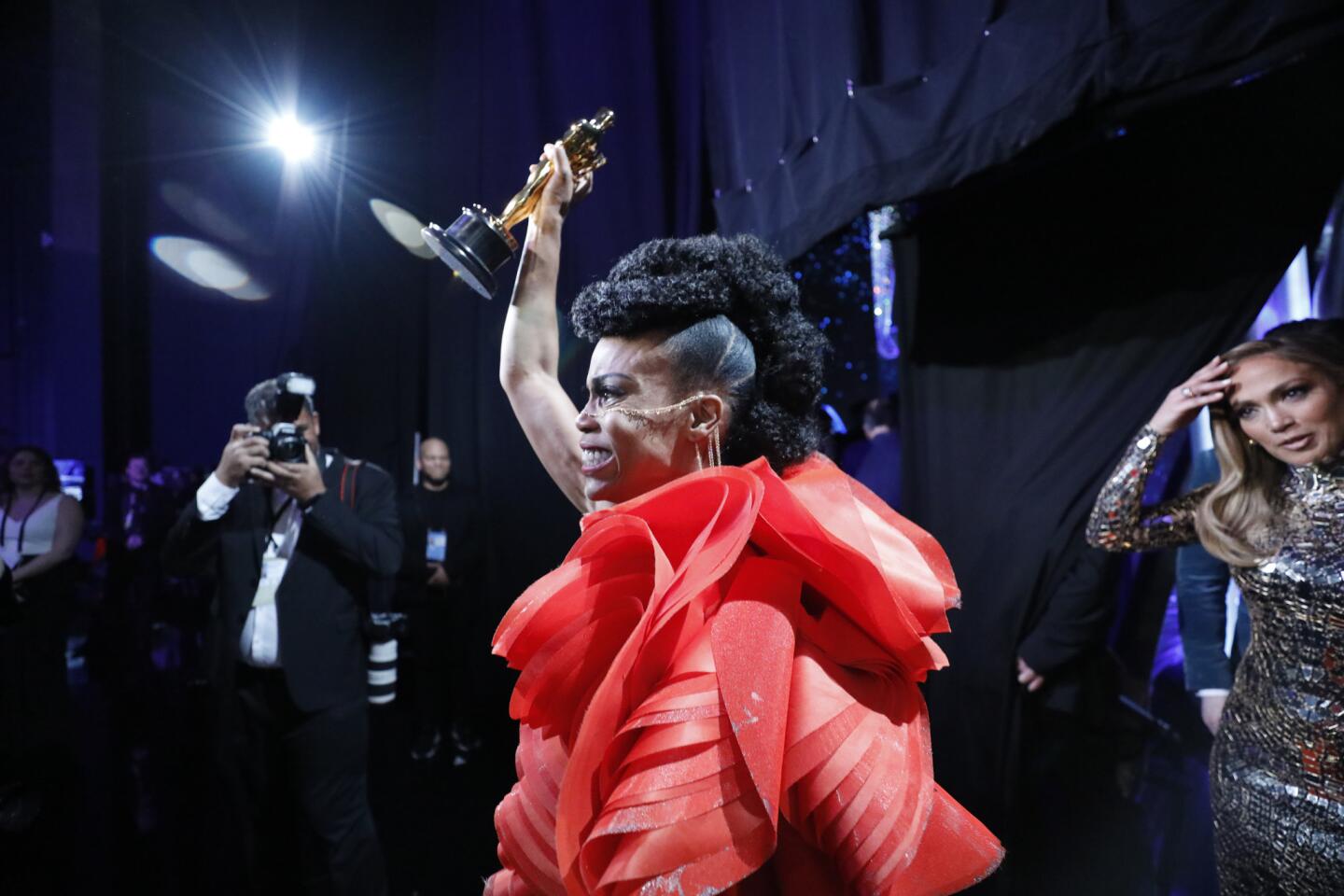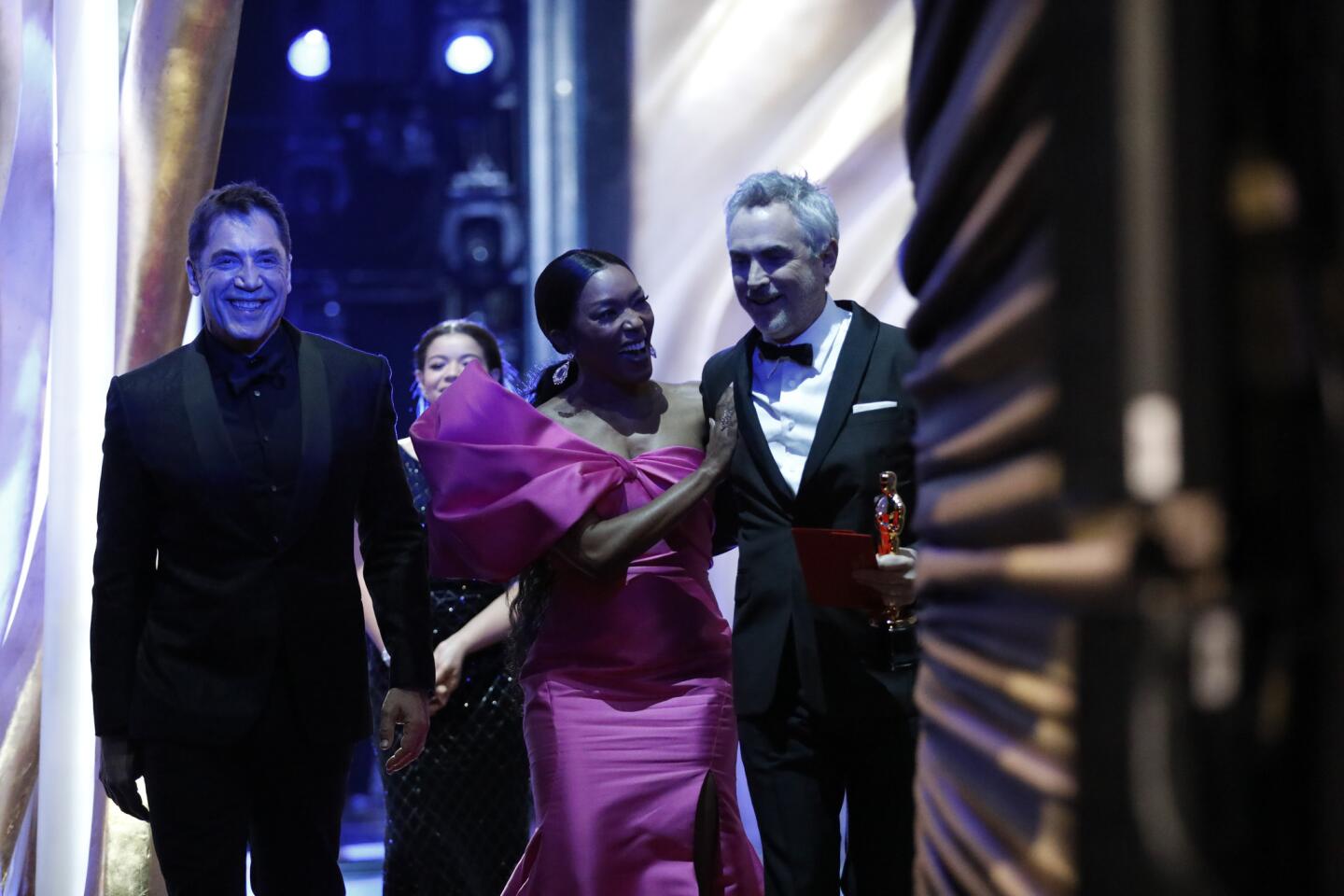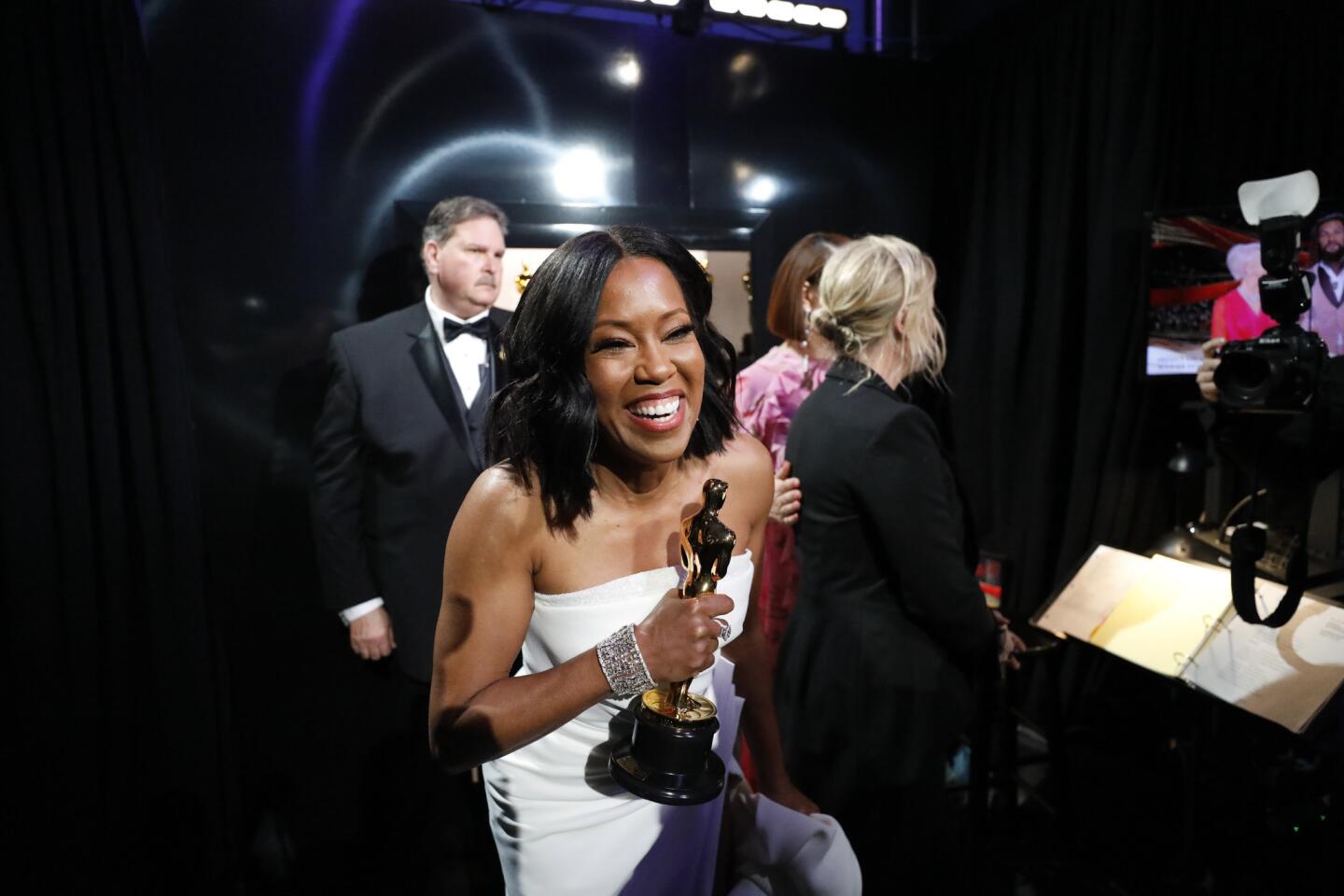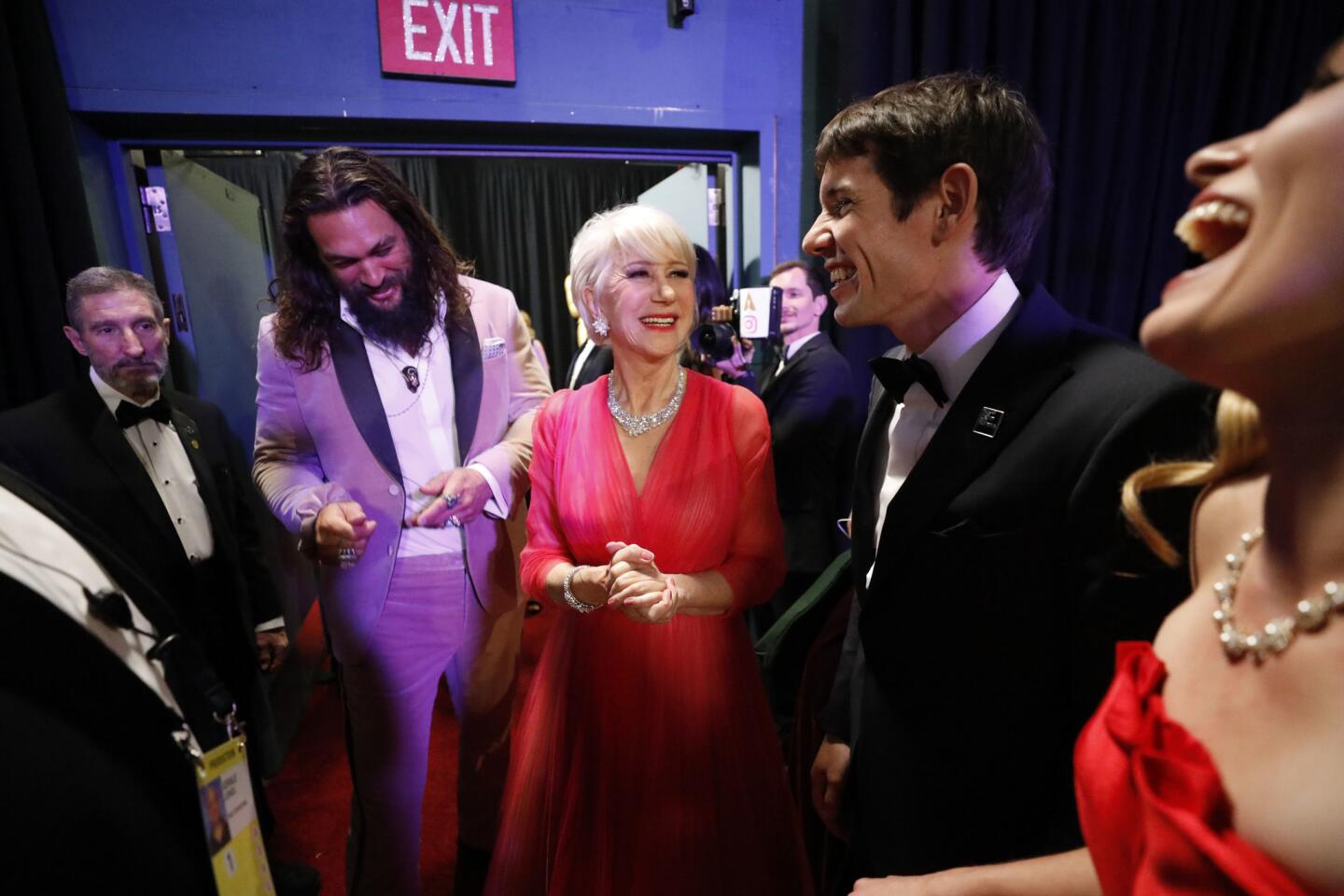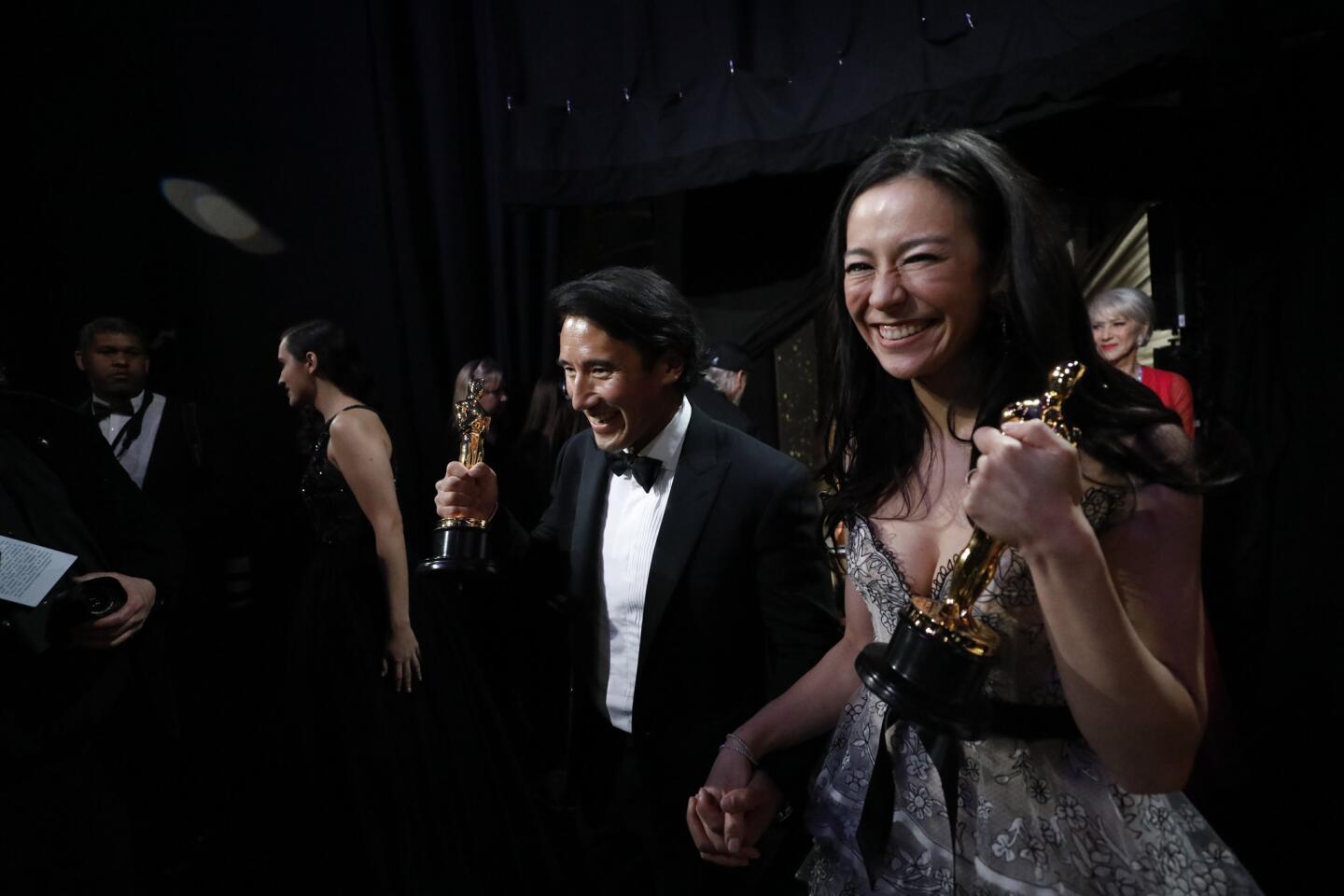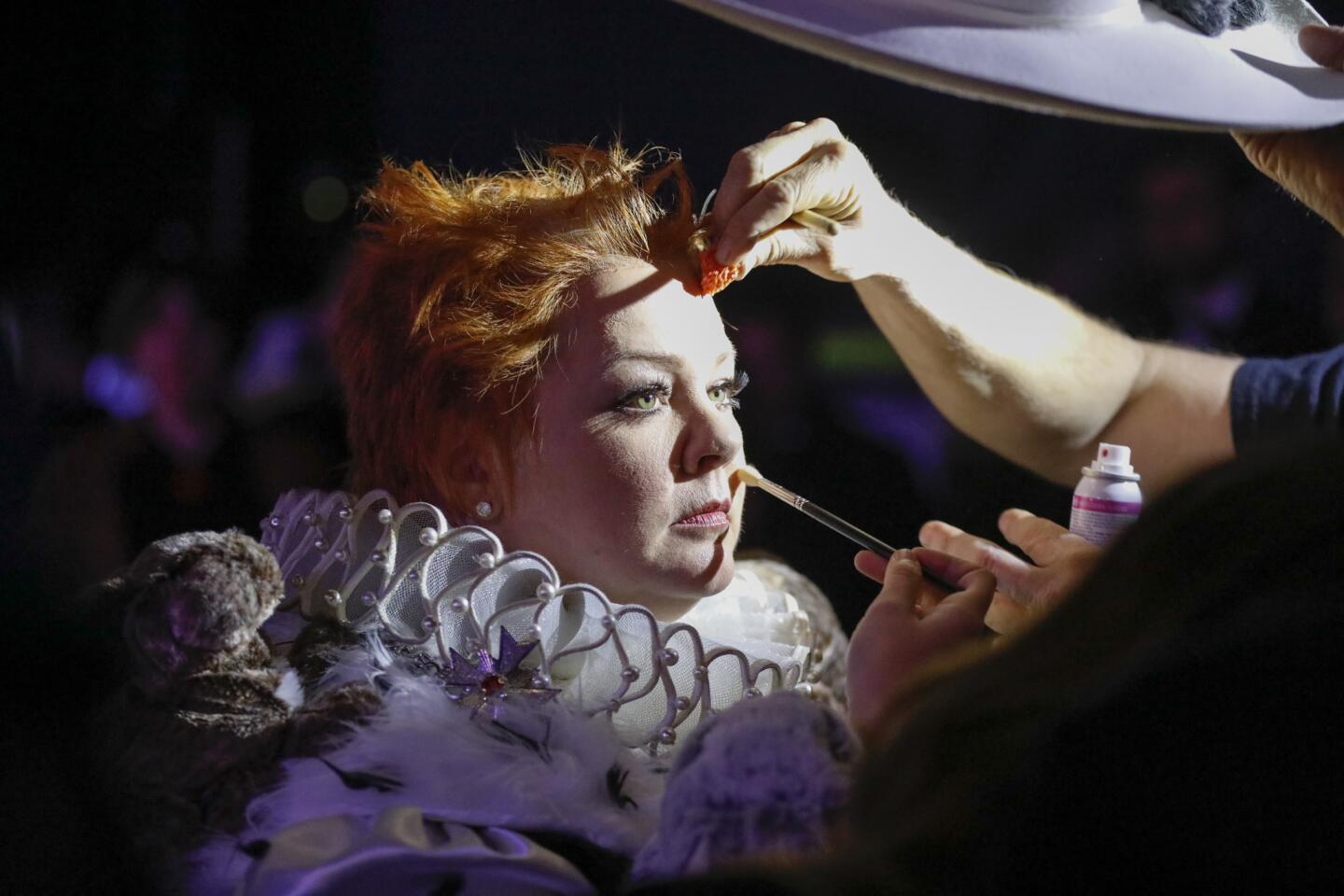Commentary: Oscars: ‘Green Book’ and ‘Bohemian Rhapsody’ signal a return to populism — but what about ‘Black Panther’?
- Share via
The Oscars giveth and the Oscars taketh away. These awards are their own beast; they follow the beat of their own drum, and if the devil takes the hindmost, it’s just going to have to be that way.
Yes, Olivia Colman pulled off the surprise of the night, besting Glenn Close by taking the best actress Oscar for a brilliant performance in the ice cold critical darling “The Favourite,” but despite ten nominations, that’s as far as that film went.
Yes, the long-deserving Spike Lee finally got his Oscar, for co-writing “BlacKkKlansman,” jumping into long-time collaborator Samuel L. Jackson’s arms in a moment of paramount joy.
And, yes, the delicate “Roma” won three major Oscars for prime mover Alfonso Cuarón, one each for best foreign language film, best cinematography and best director. When Cuarón picked up the third one, he said, perhaps dreaming of a fourth, “It doesn’t get old being up here,” but it was not to be.
For instead of “Roma” taking home the best picture Oscar, as had been widely anticipated, that award went to the very different “Green Book,” a turn of events that started to look possible when the film surprised pundits with its best original screenplay win.
2019 Oscars: See the full list of winners and nominees »
Smooth sailing, of course, had not been predicted for “Roma.” It had a lot of barriers to overcome to win best picture, including being a Spanish-language drama shot in black and white and distributed by Netflix, an entity that a portion of the film community views as an existential threat.
But, put in the context of the entire evening, “Roma’s” loss to “Green Book” looks like something else. It looks like a change of course for the academy, away from the small artistic films that have dominated the best picture ranks in recent years.
Admire them or not, there is no denying that the best picture winners of the past five years – “Shape of Water,” “Moonlight,” “Spotlight,” “Birdman” and “12 Years A Slave” – have not had a box-office titan among them.
You have to go back to 2012 and “Argo,” or perhaps even further, to get a winner with the look and feel of a commercial picture.
The membership this year would have none of it. Voters went for “Green Book,” a film whose box-office grosses continued to climb and climb even as it weathered a series of pubic relations disasters. But those blunders by the filmmakers turned out not to matter because, as I noted when it came out, “Green Book” is a practiced crowd-pleaser, and “it is deeply embedded in the film’s DNA to make us feel good.”
The academy, as much as it wants the public to think differently, is made up of moviegoers who are as susceptible as non-professionals to these kinds of blandishments. The members vote for what they like and rationalize it to themselves later on.
If there was a precursor to “Green Book’s” best picture win, it was not only that screenplay victory but the way the academy couldn’t get enough of voting for the weak and clichéd “Bohemian Rhapsody.”
Though Rami Malek’s victory as best actor was forecast, no pundit I read expected the movie to walk off with four Oscars, the others for best editing, sound mixing and sound editing.
For a film this feeble to have led all comers with four Oscar victories — more than the original “Godfather” — is something that will do the academy’s reputation as an arbiter of taste no favors.
If those who voted the straight “Rhapsody” ticket wake up with a hangover for the way they cast their ballots, I would not be surprised.
If there was a positive side to the return of Oscar populism, it was in the three key awards won by “Black Panther,” including best costume design, best production design and best score.
This is prestigious territory for what too many voters likely denigrated as a comic-book movie, and the moving speeches by winners including Ruth E. Carter for costume design and the emotional Hannah Beachler for production design underlined how meaningful those victories were.
If voters had followed that populist instinct but instead channeled it toward the best popular film in the race, Ryan Coogler’s “Black Panther,” it would have turned a dissonant night into a beautiful and triumphant one. It was not to be.

From Lady Gaga and Bradley Cooper singing to a ‘Wayne’s World’ reunion, these are the highlights from the 2019 Academy Awards.
More to Read
Only good movies
Get the Indie Focus newsletter, Mark Olsen's weekly guide to the world of cinema.
You may occasionally receive promotional content from the Los Angeles Times.
